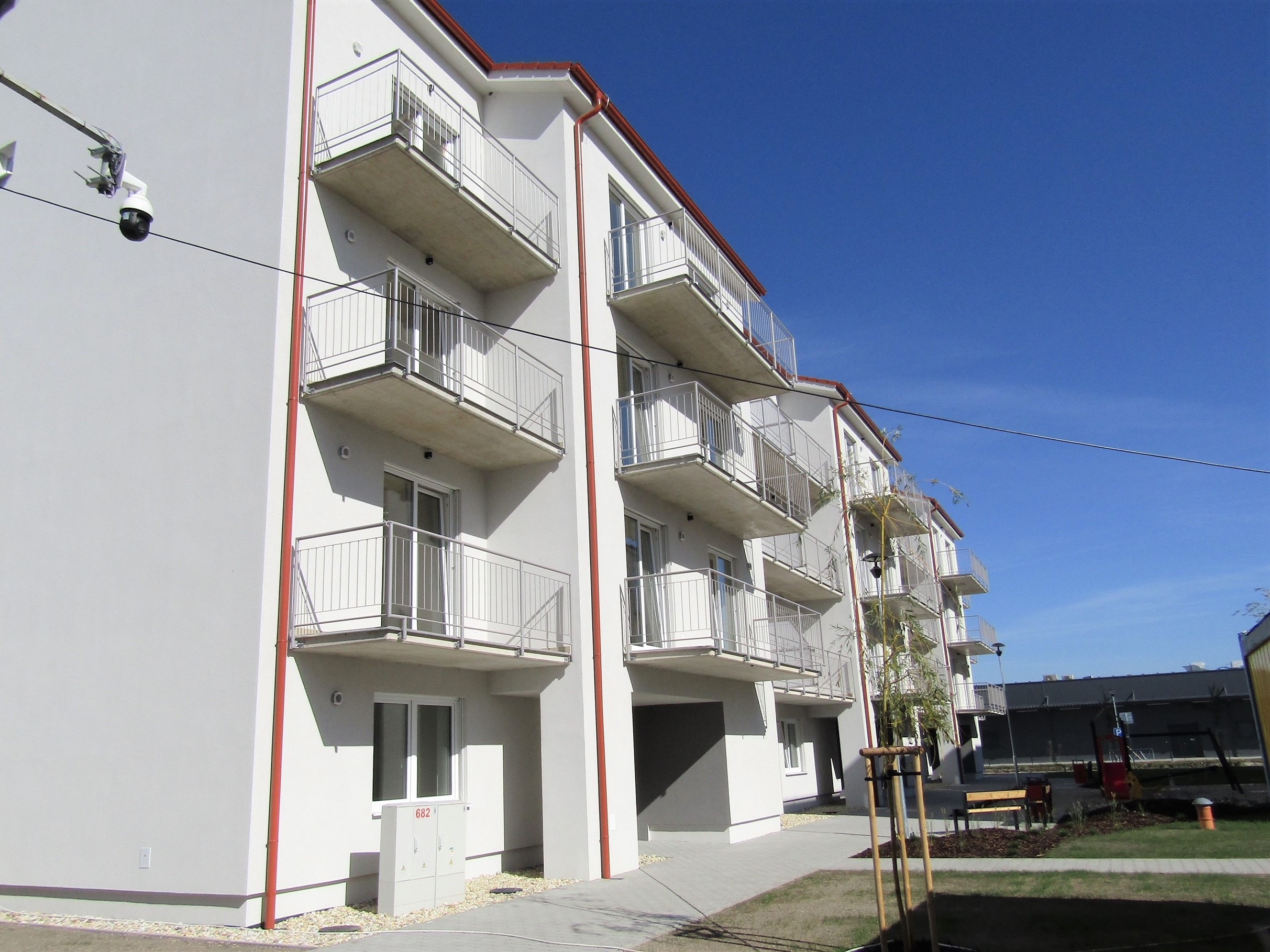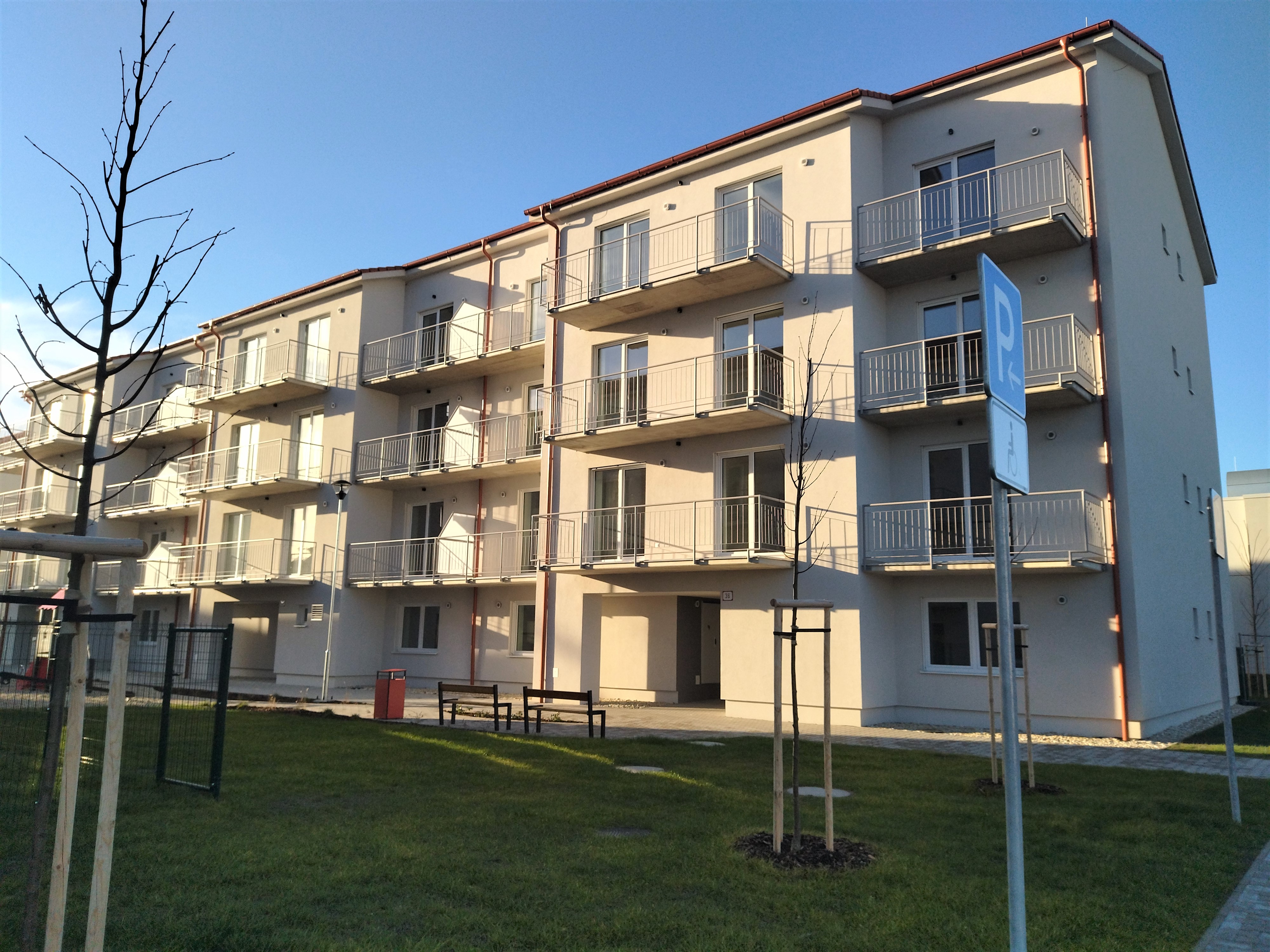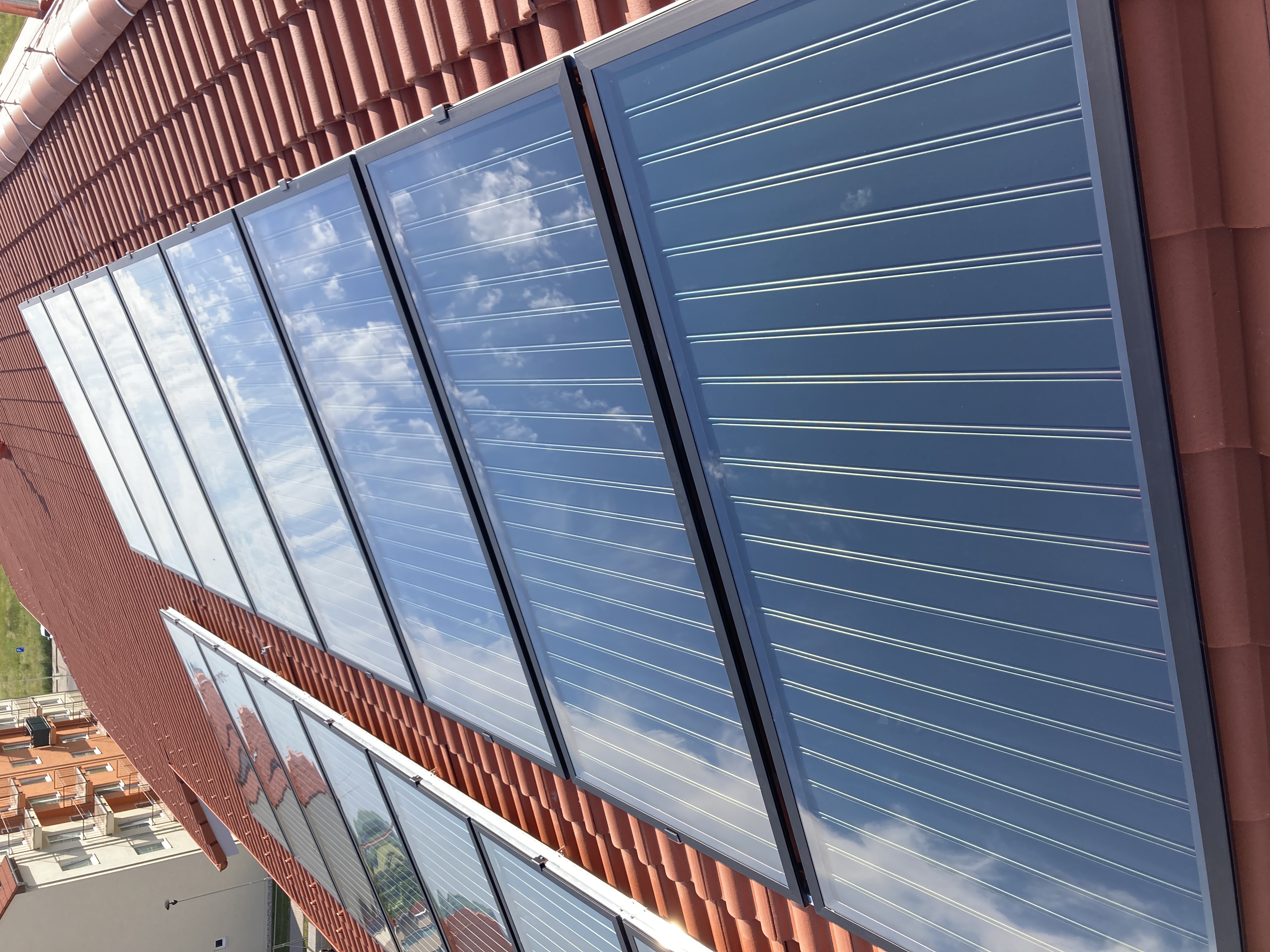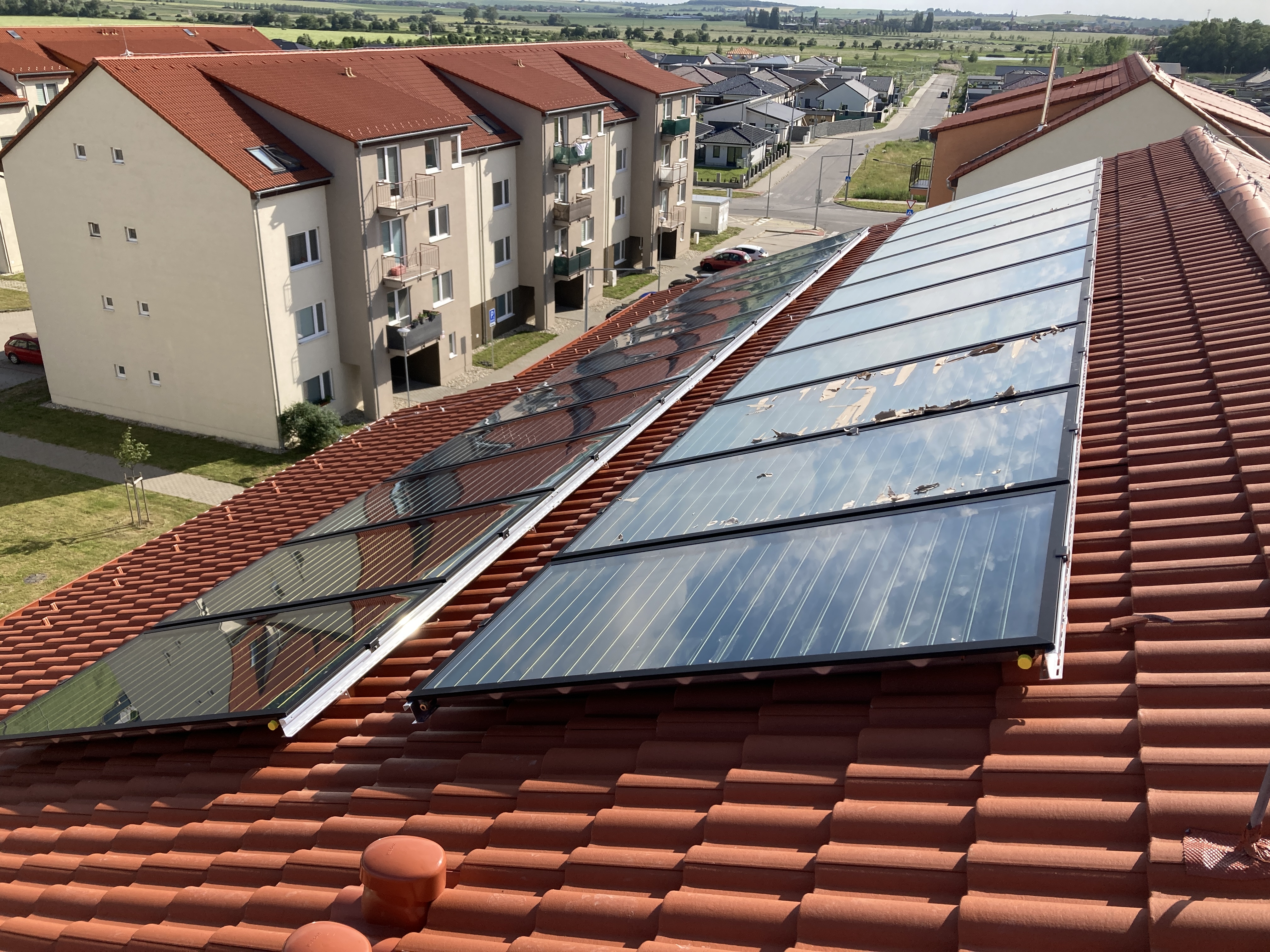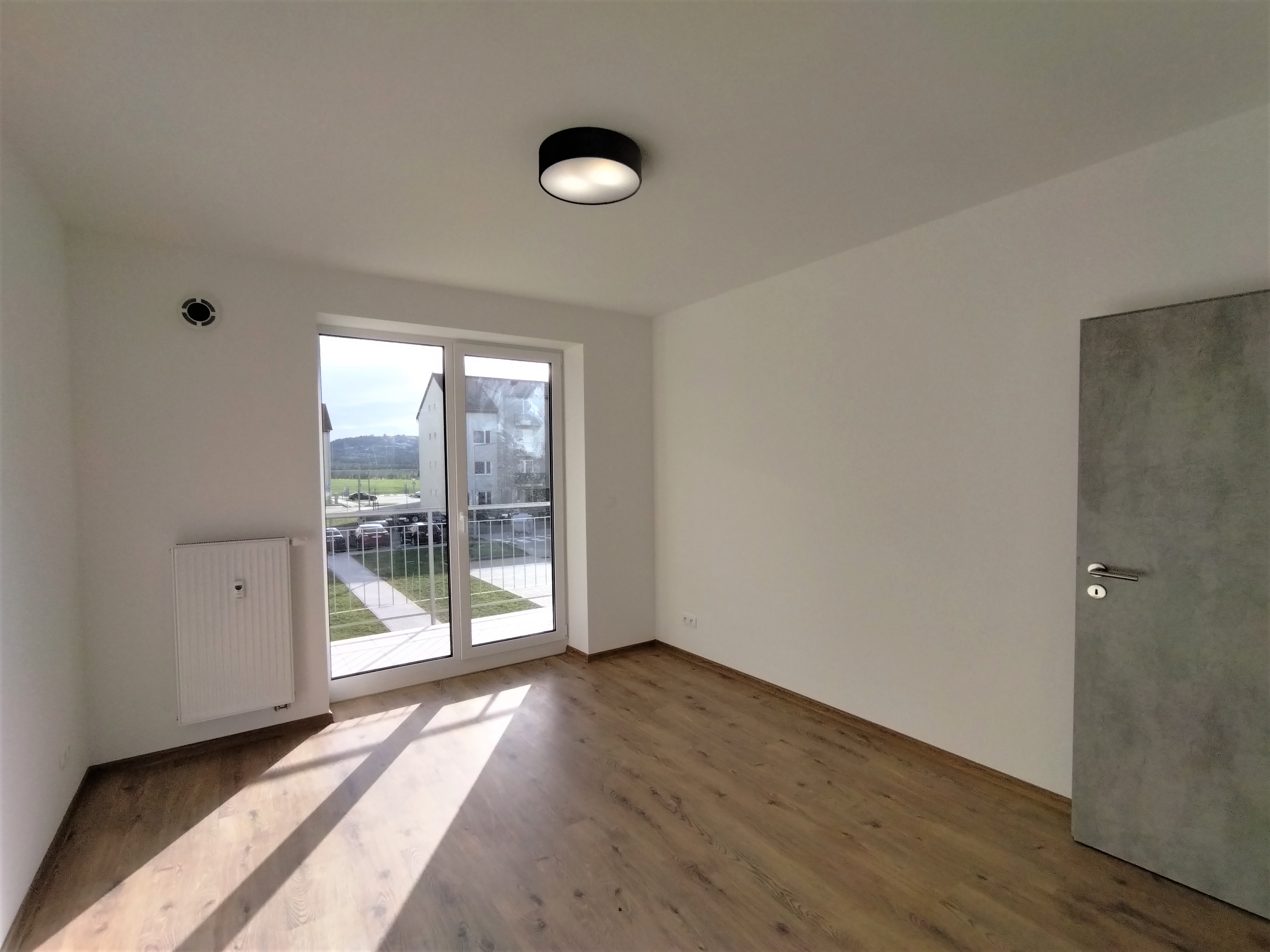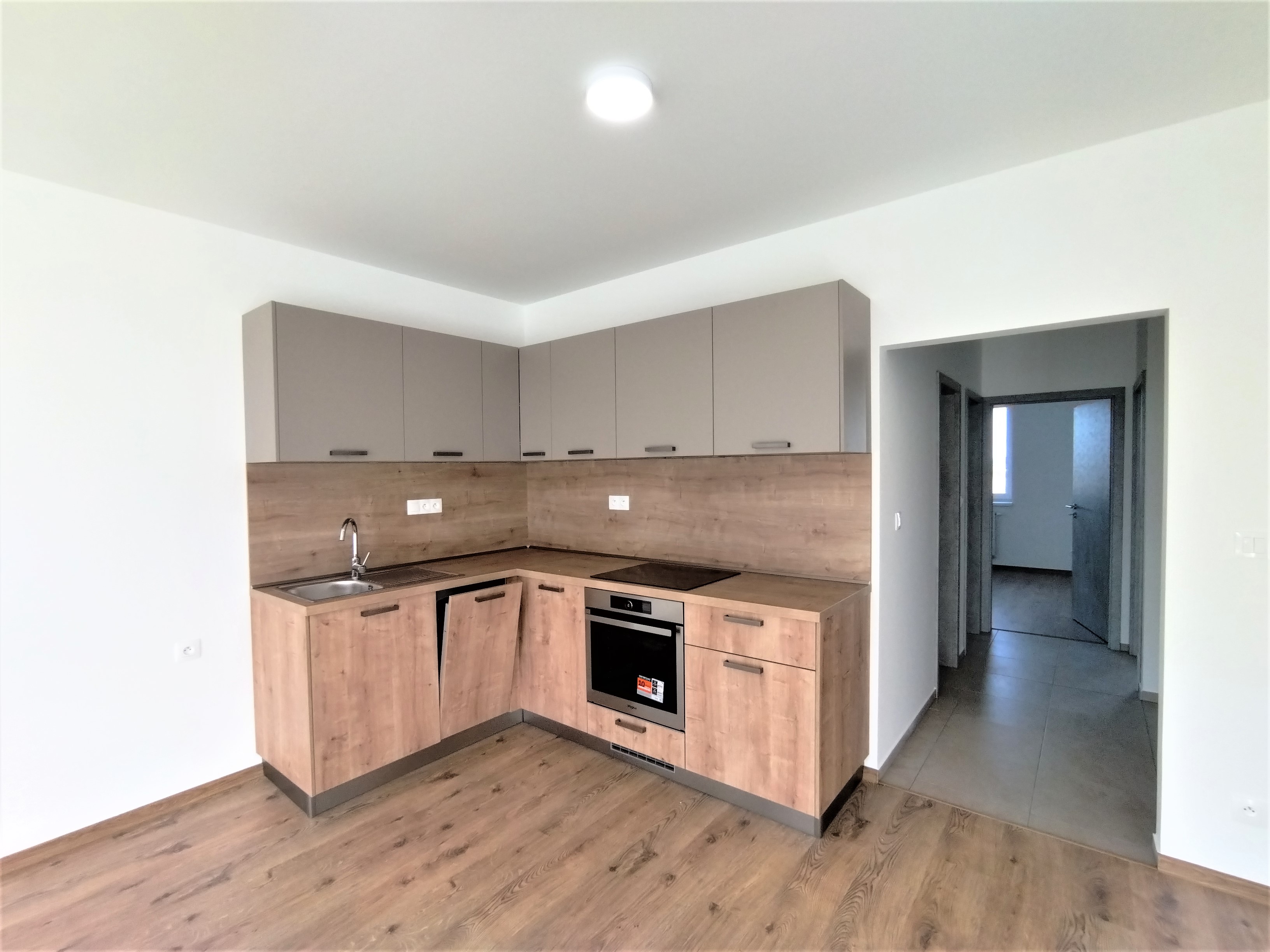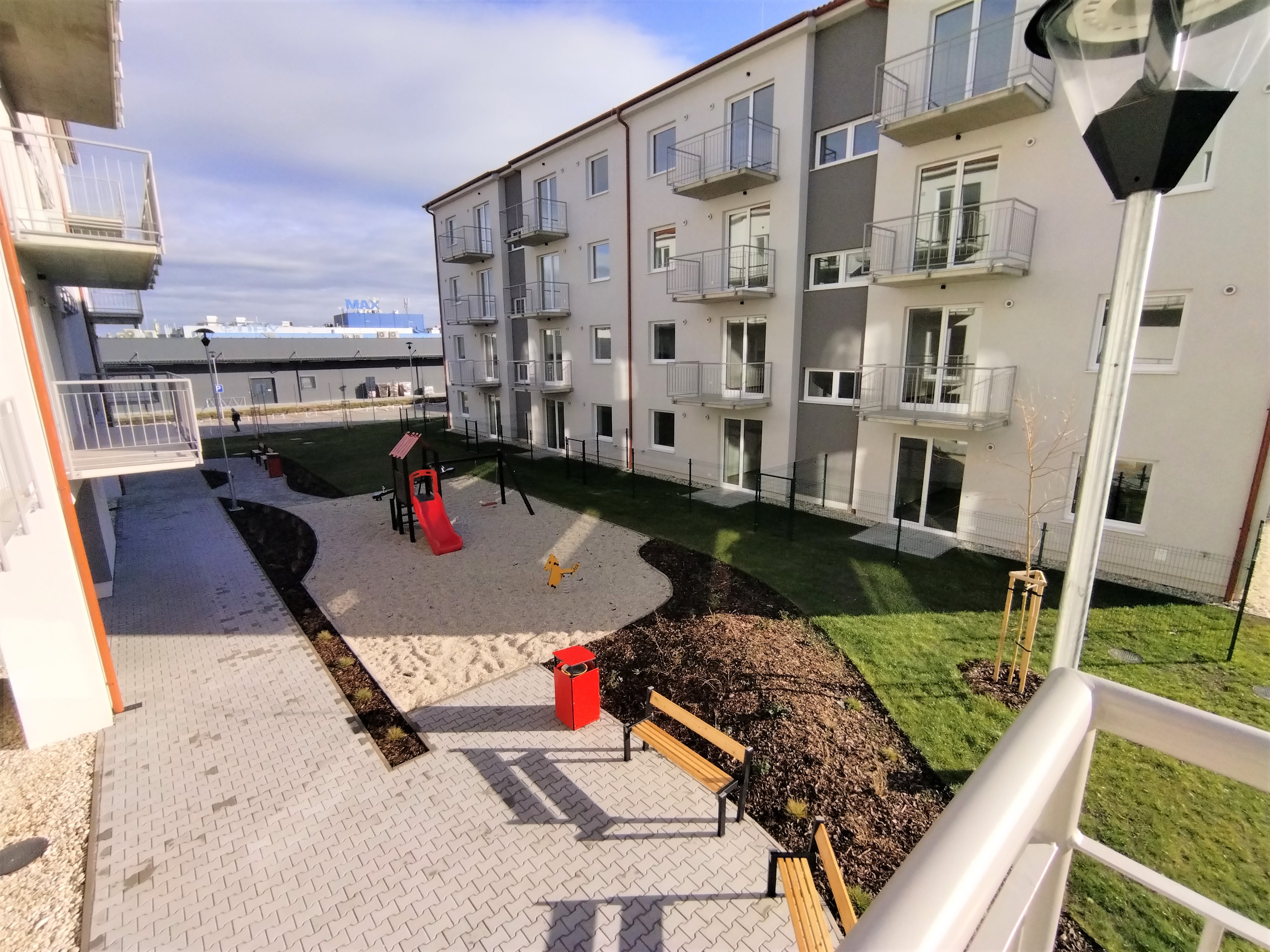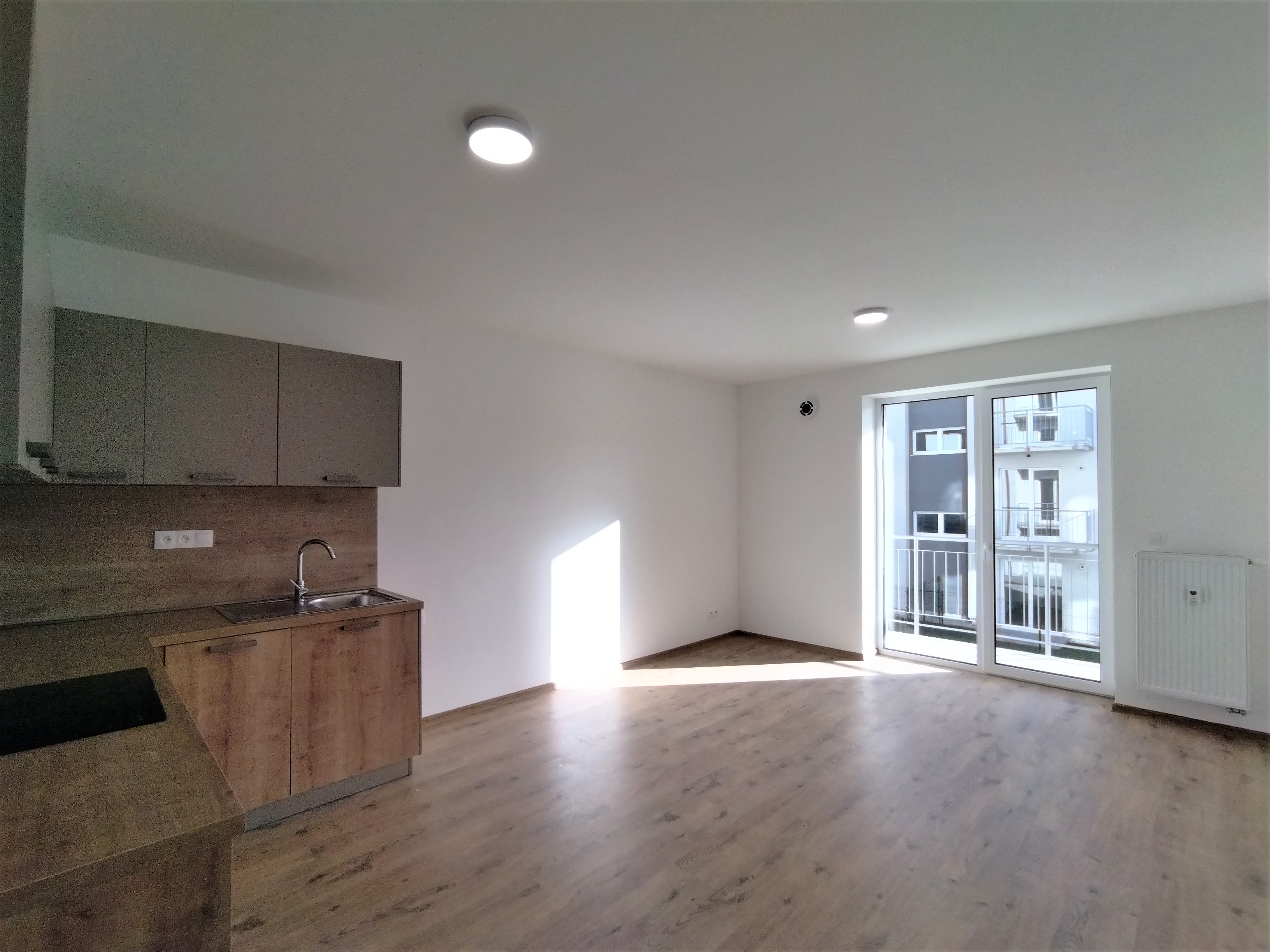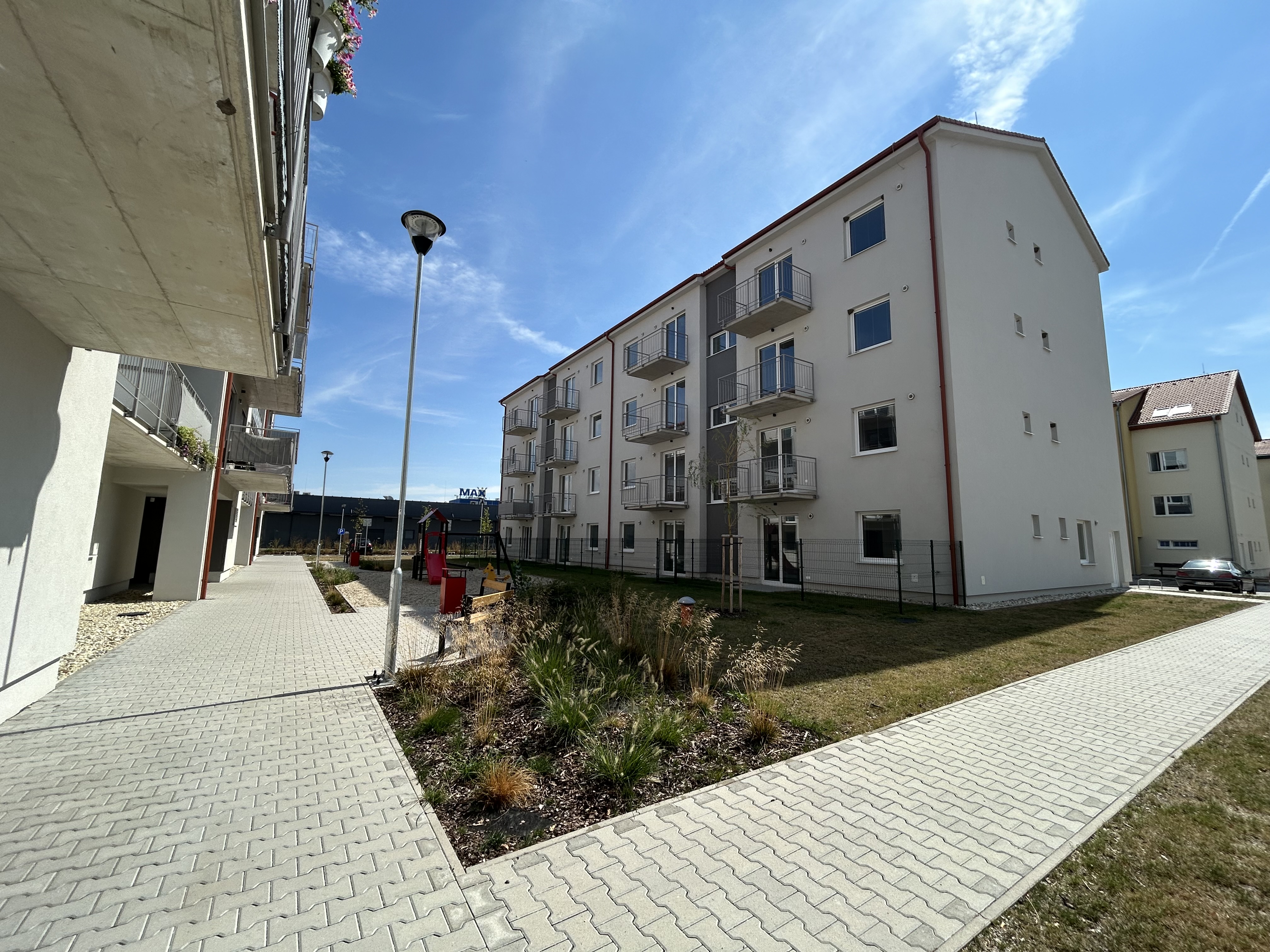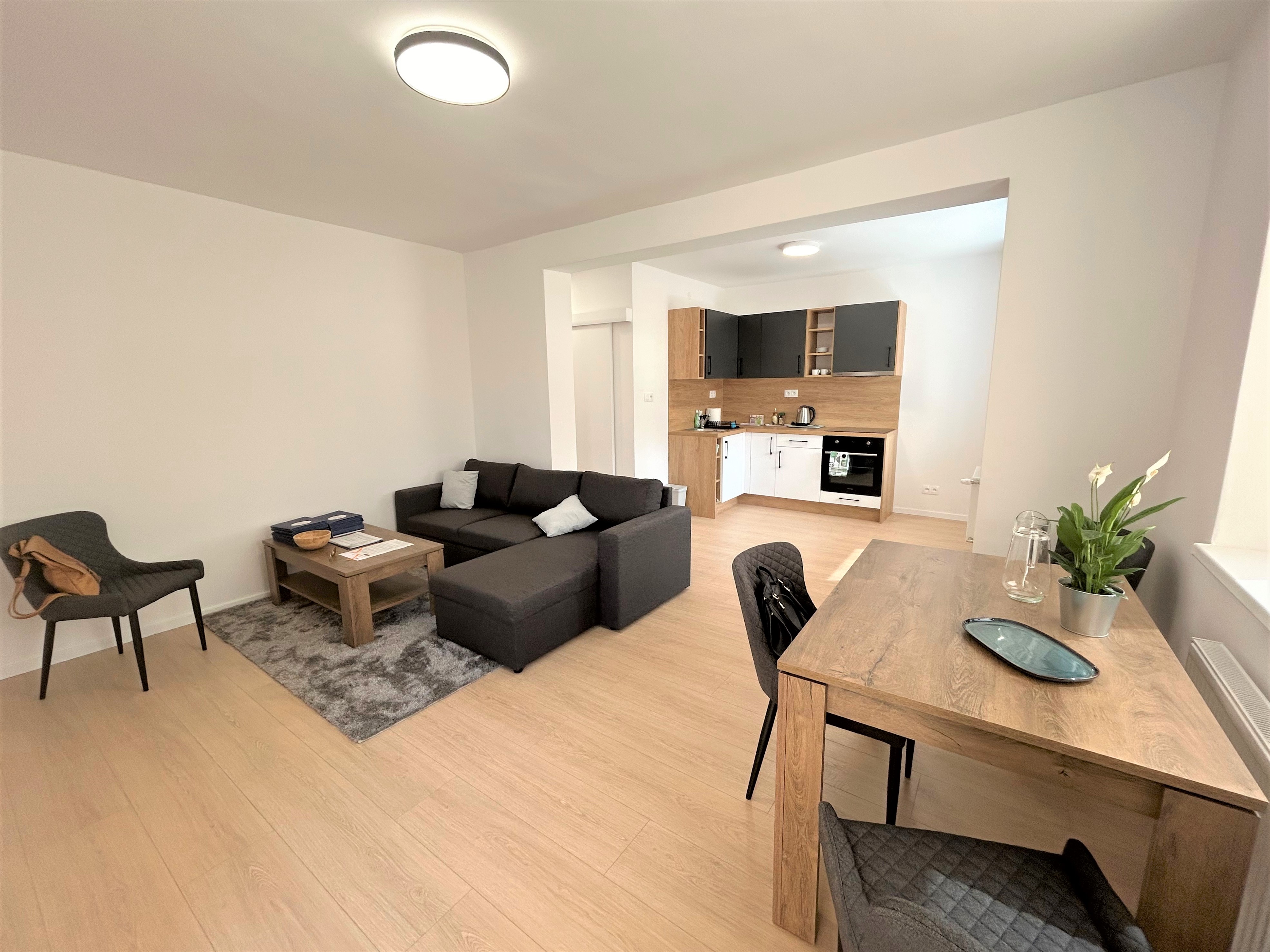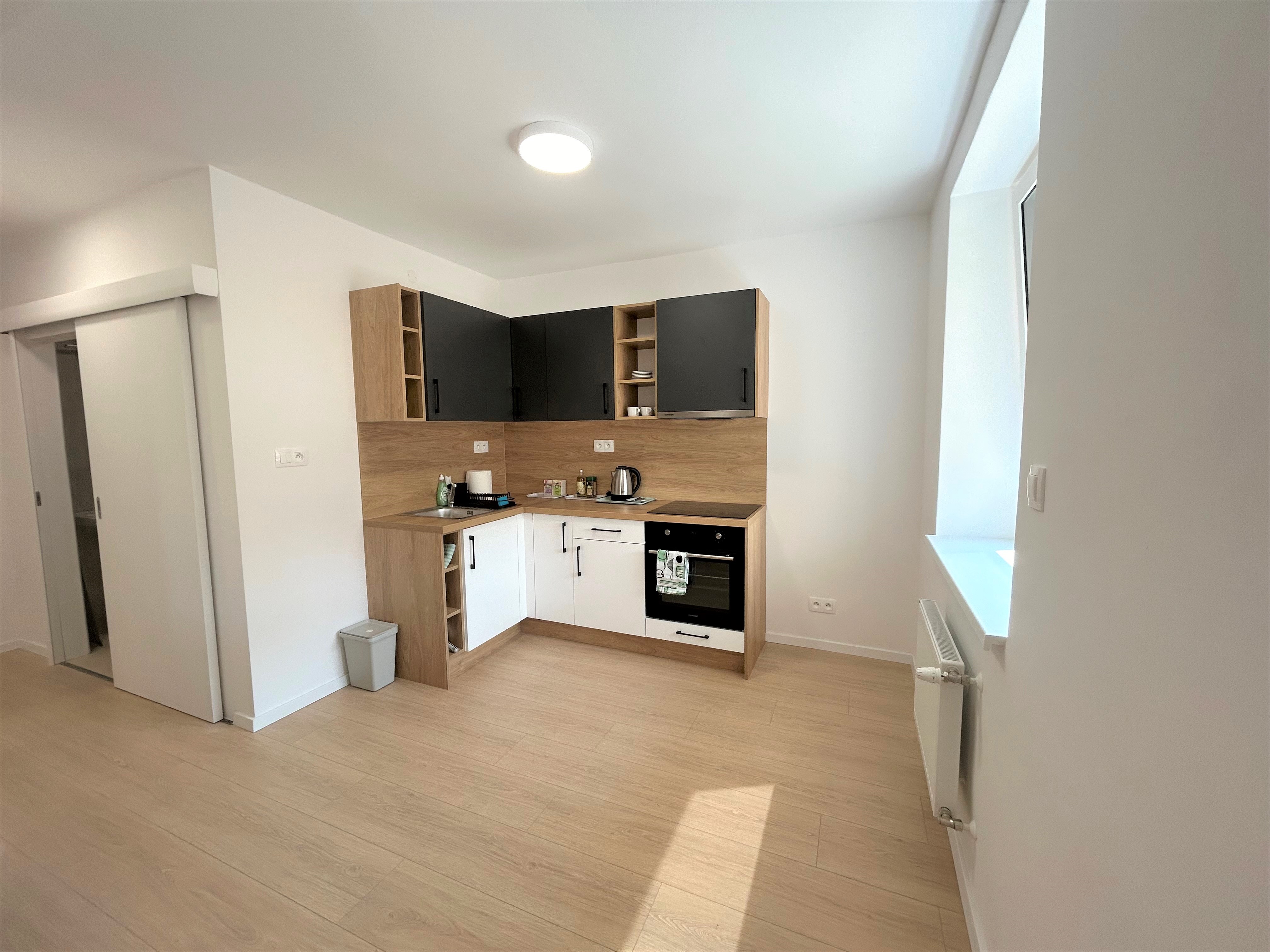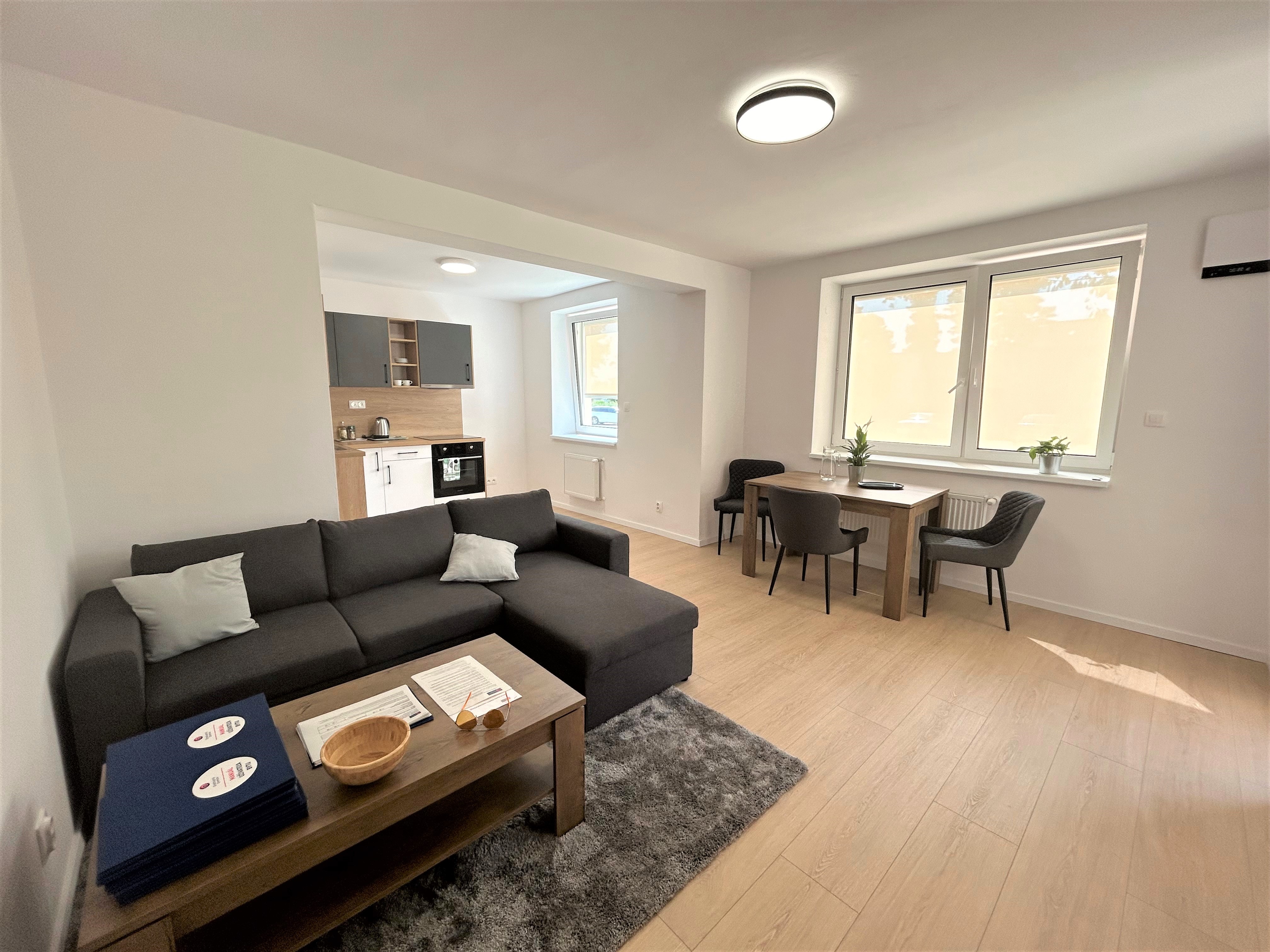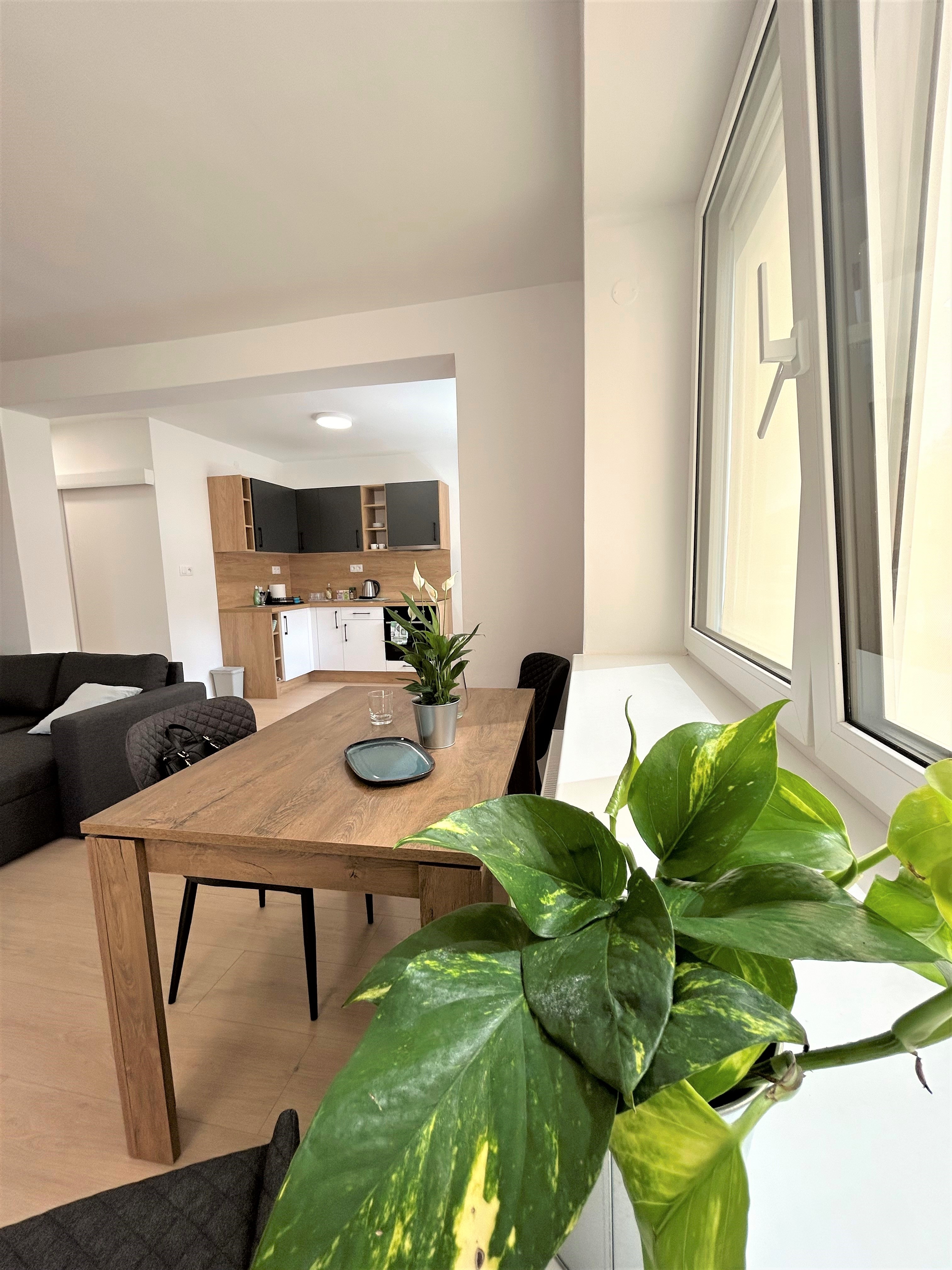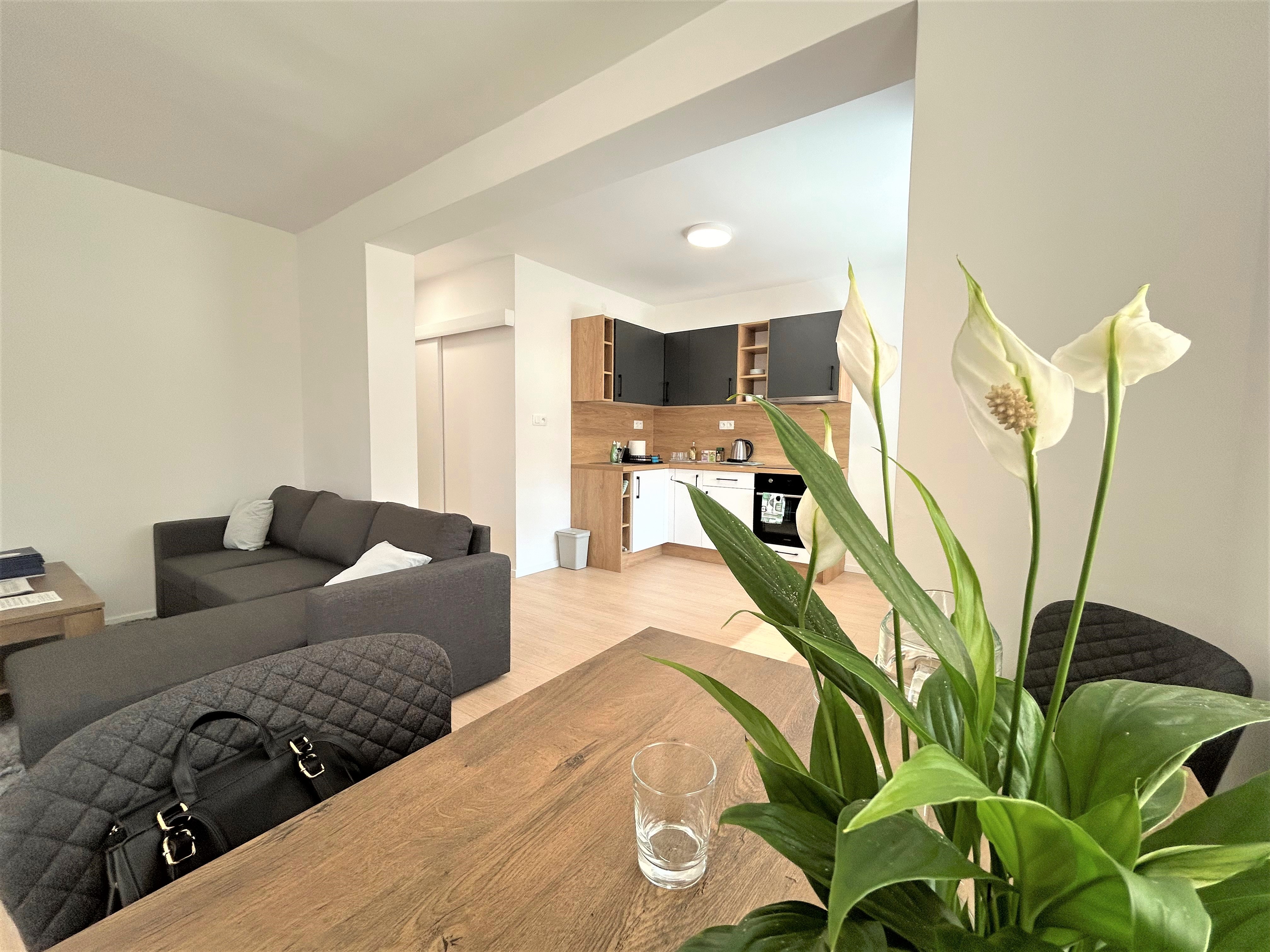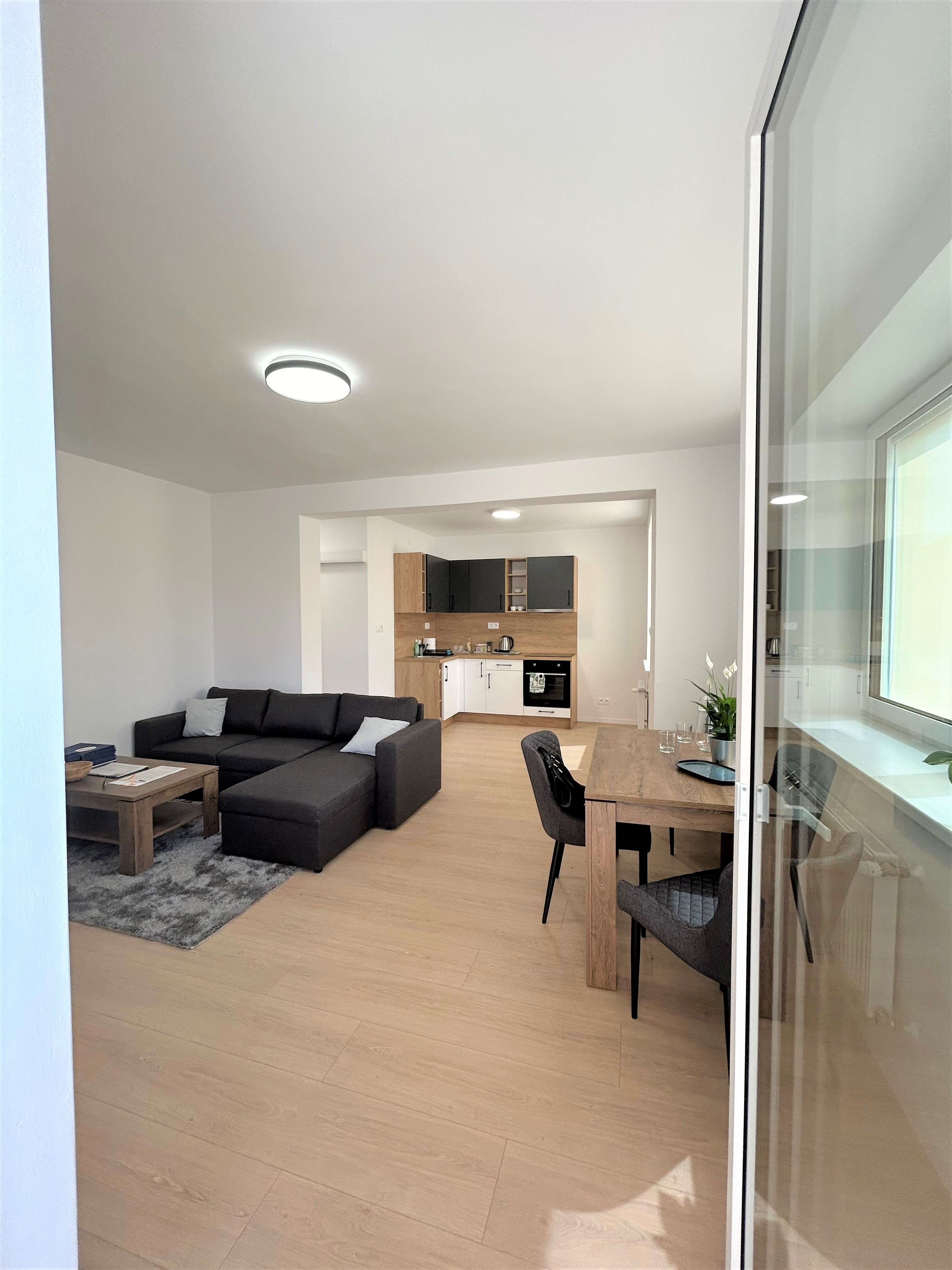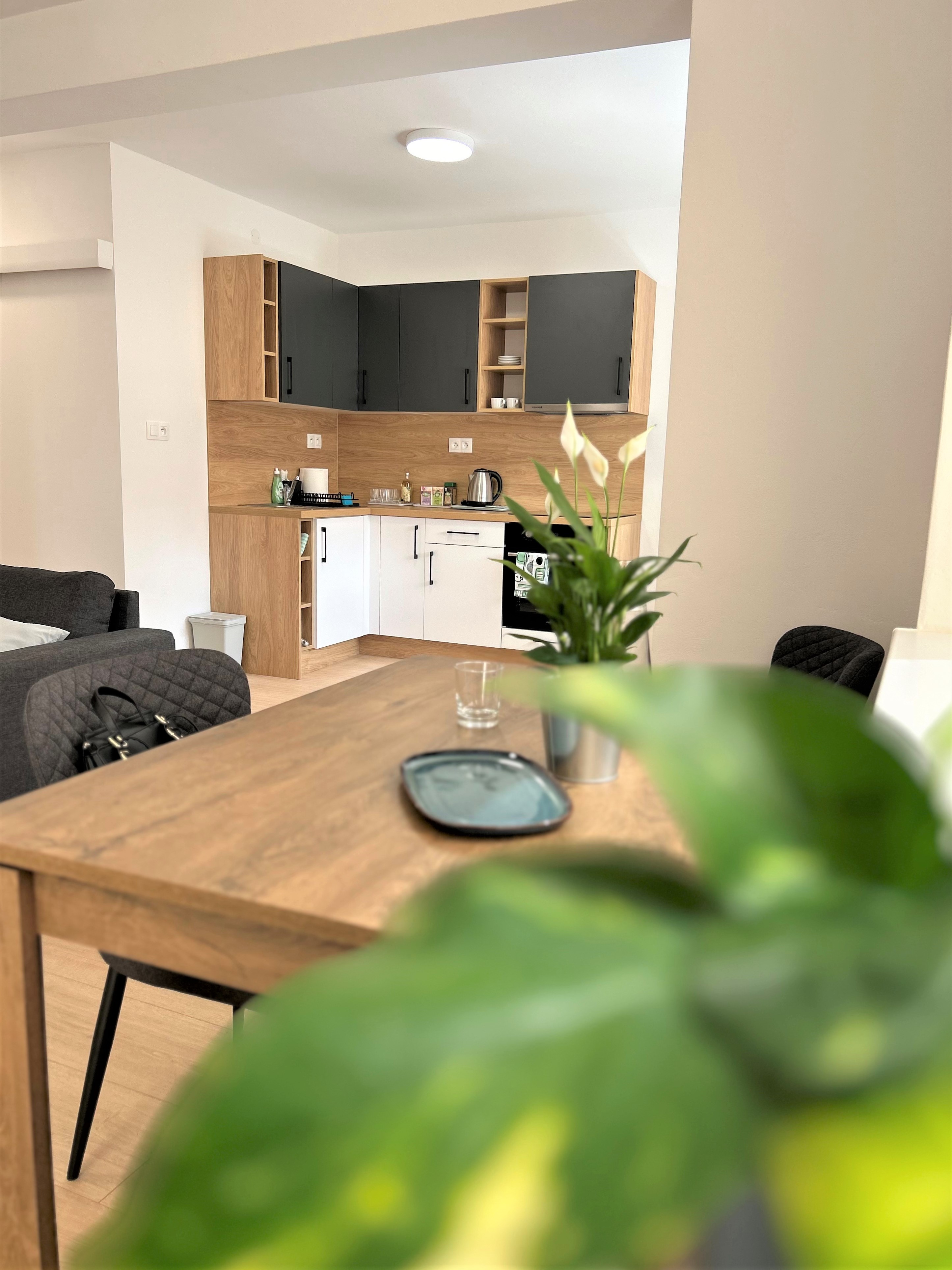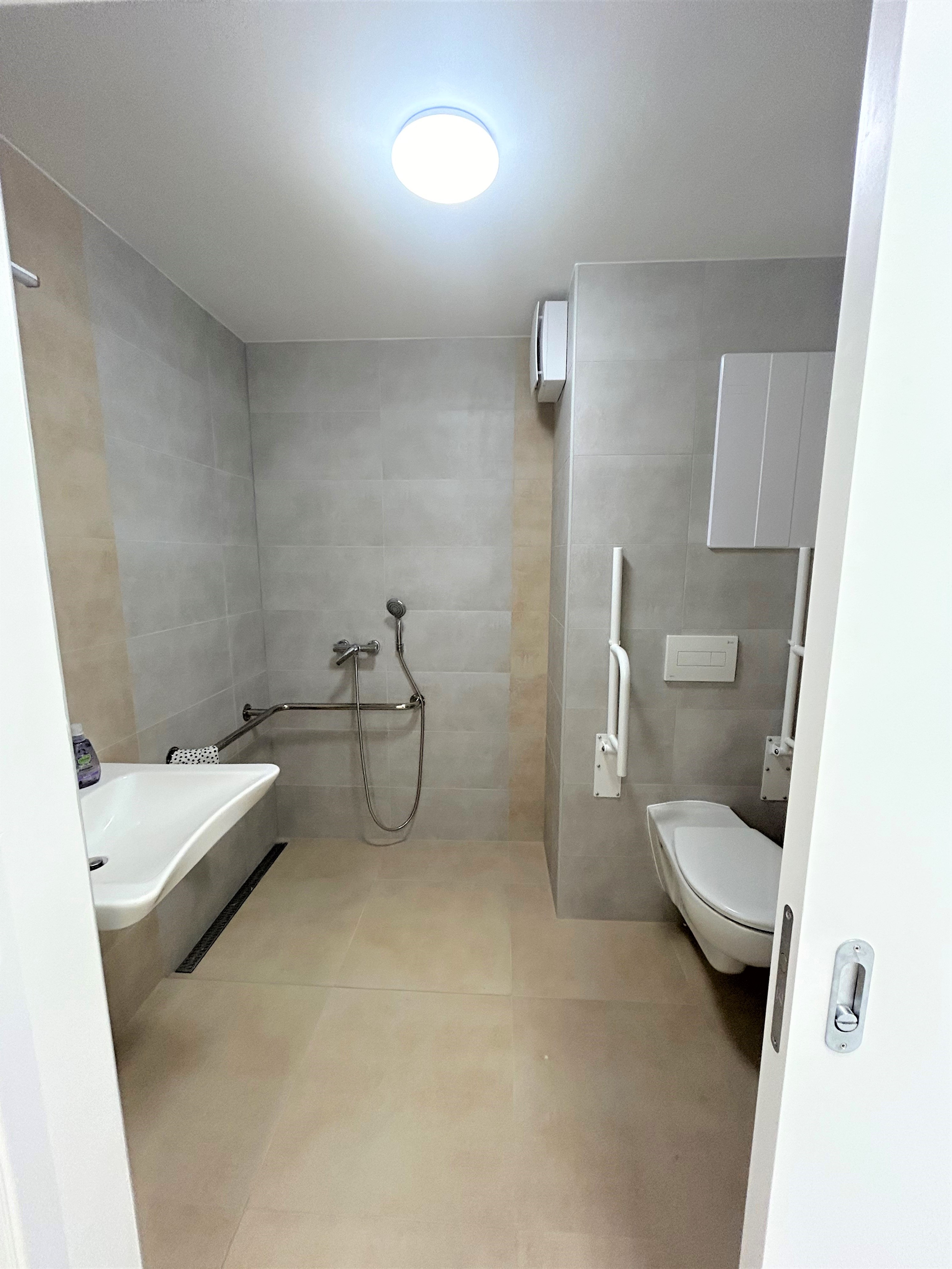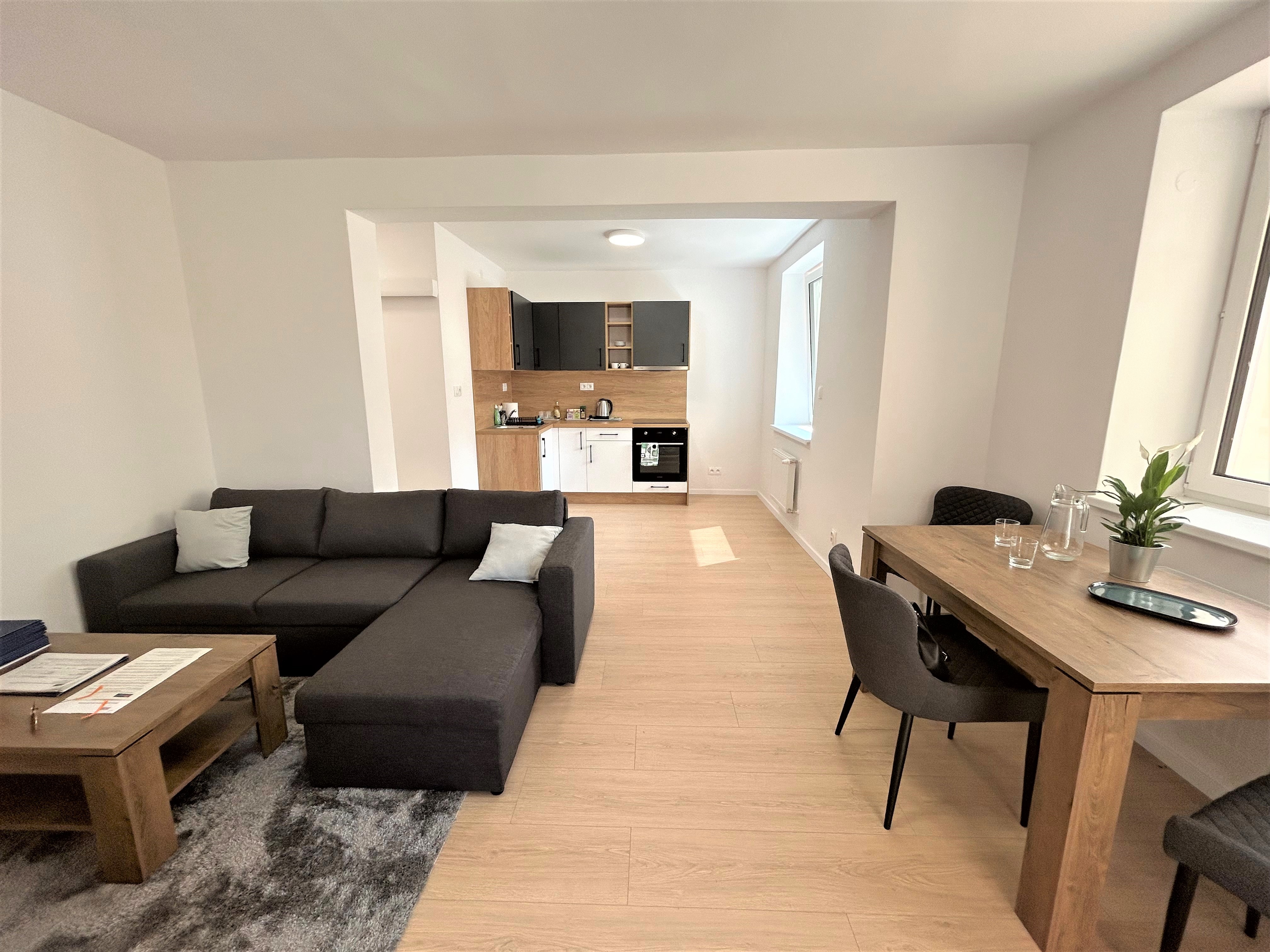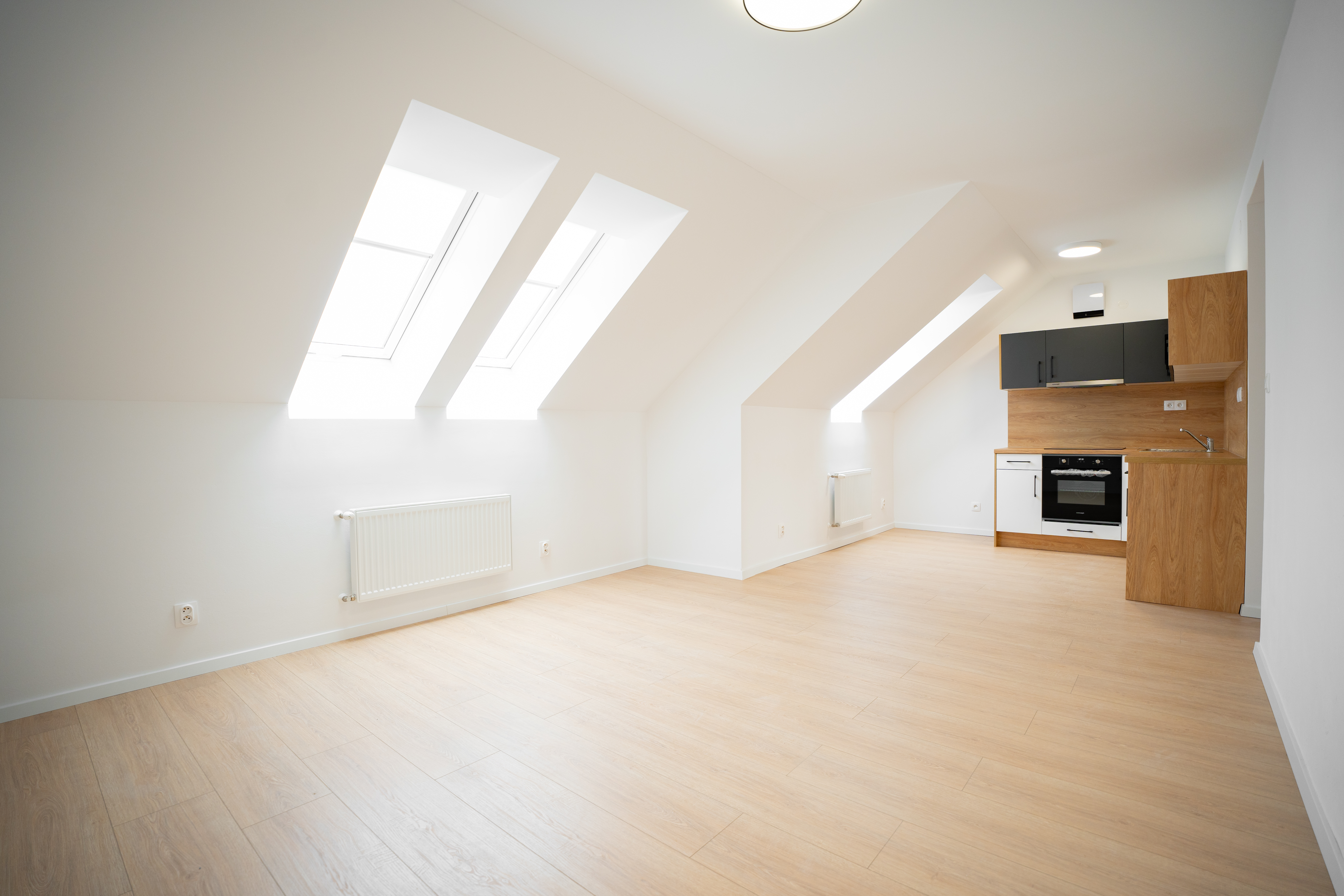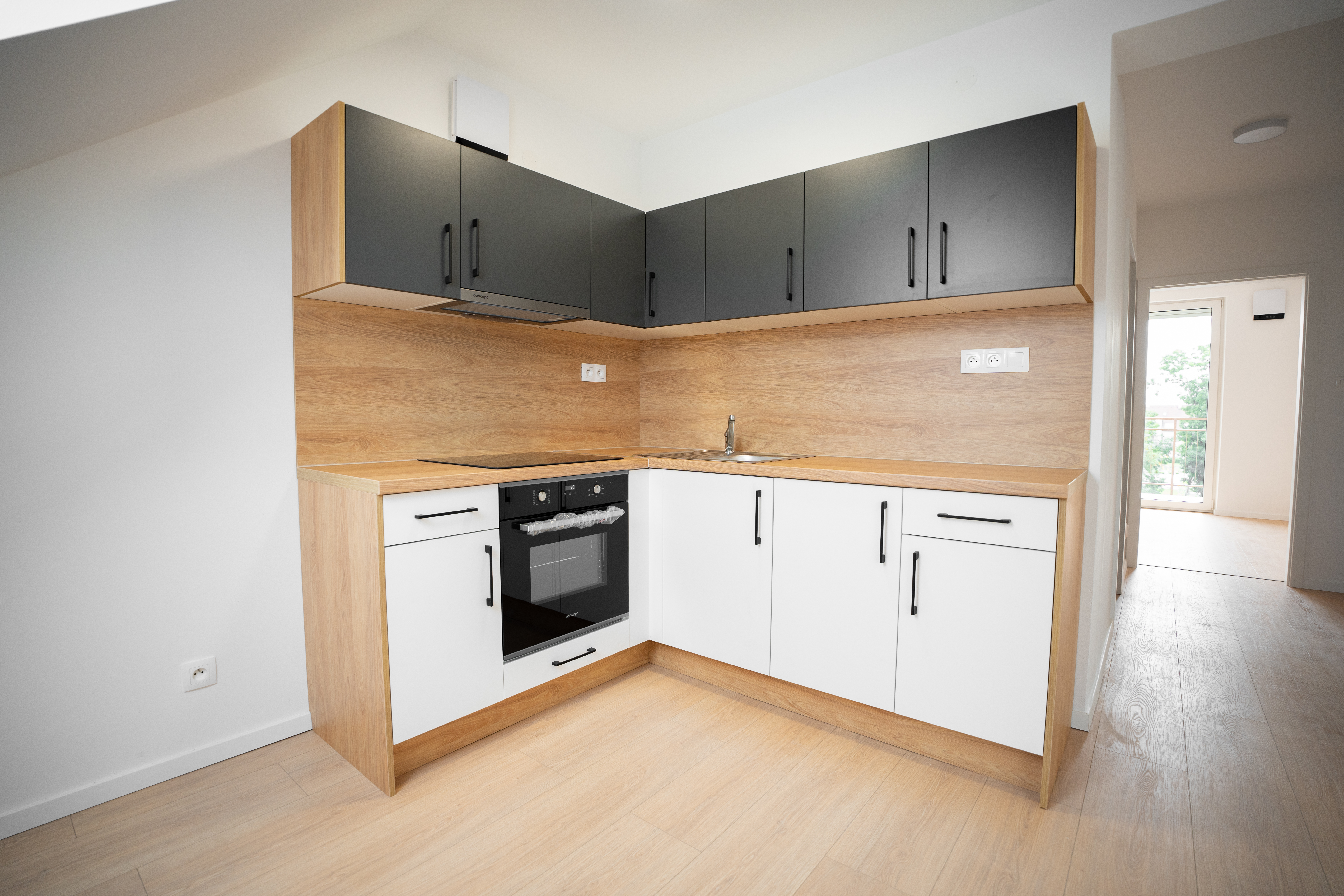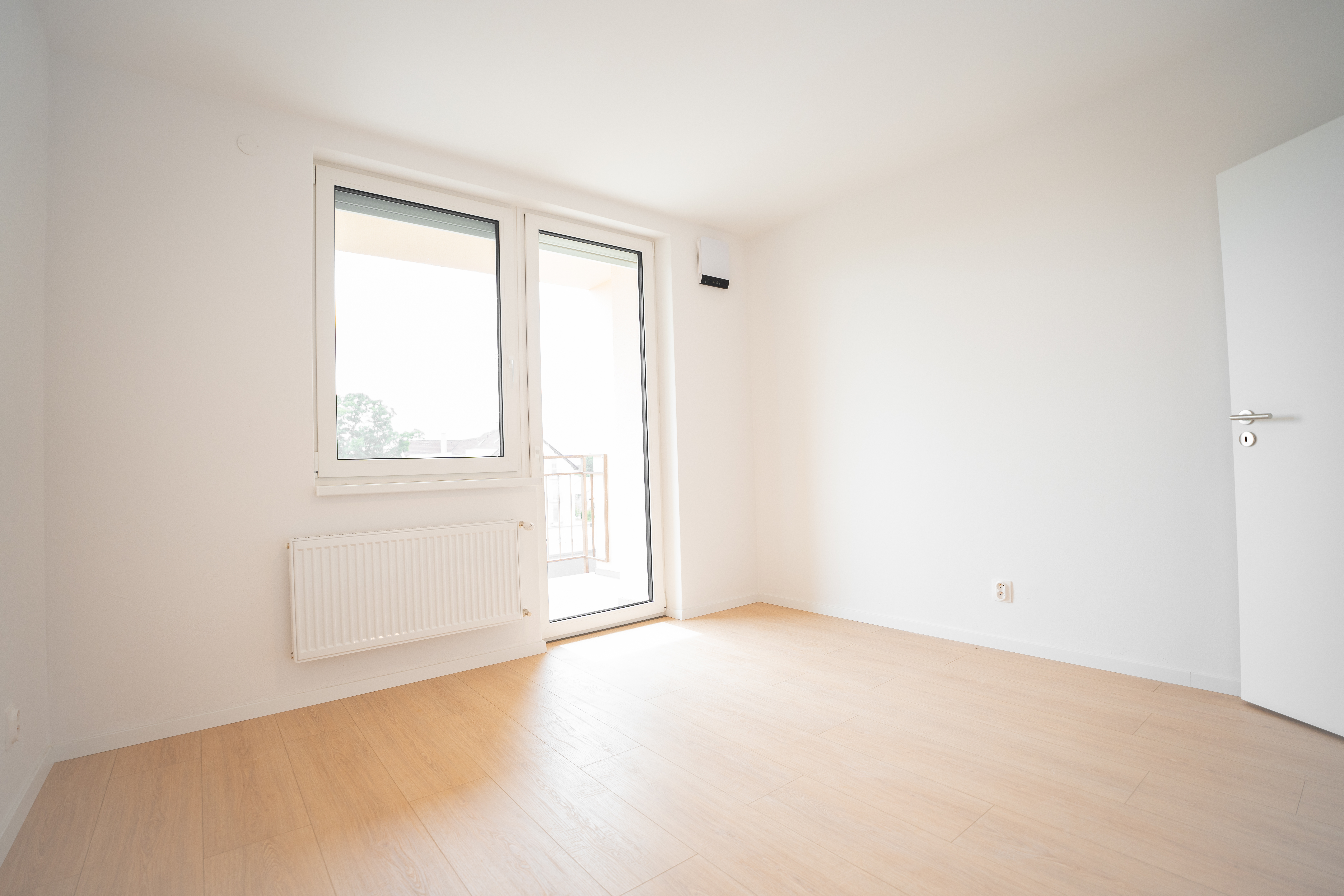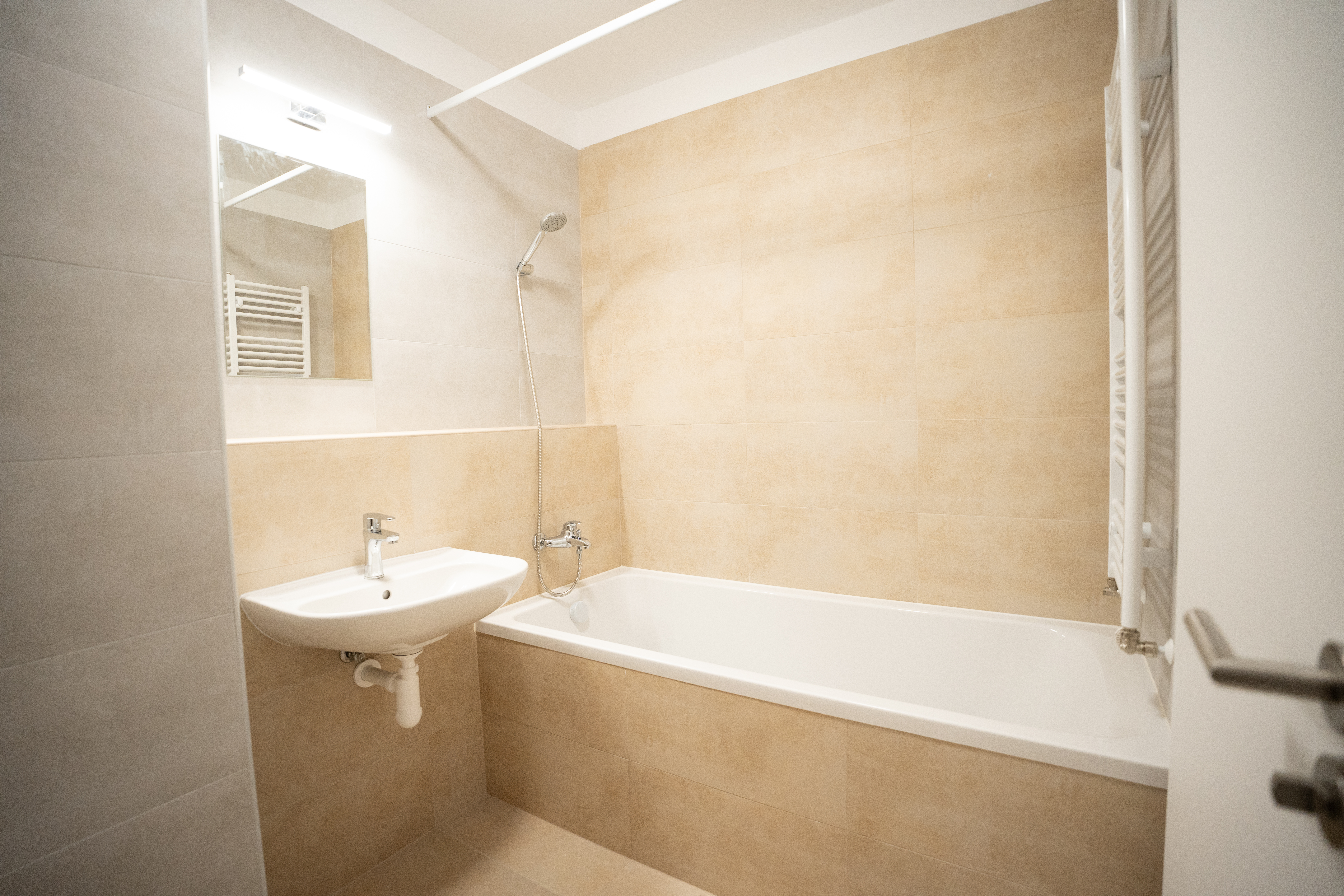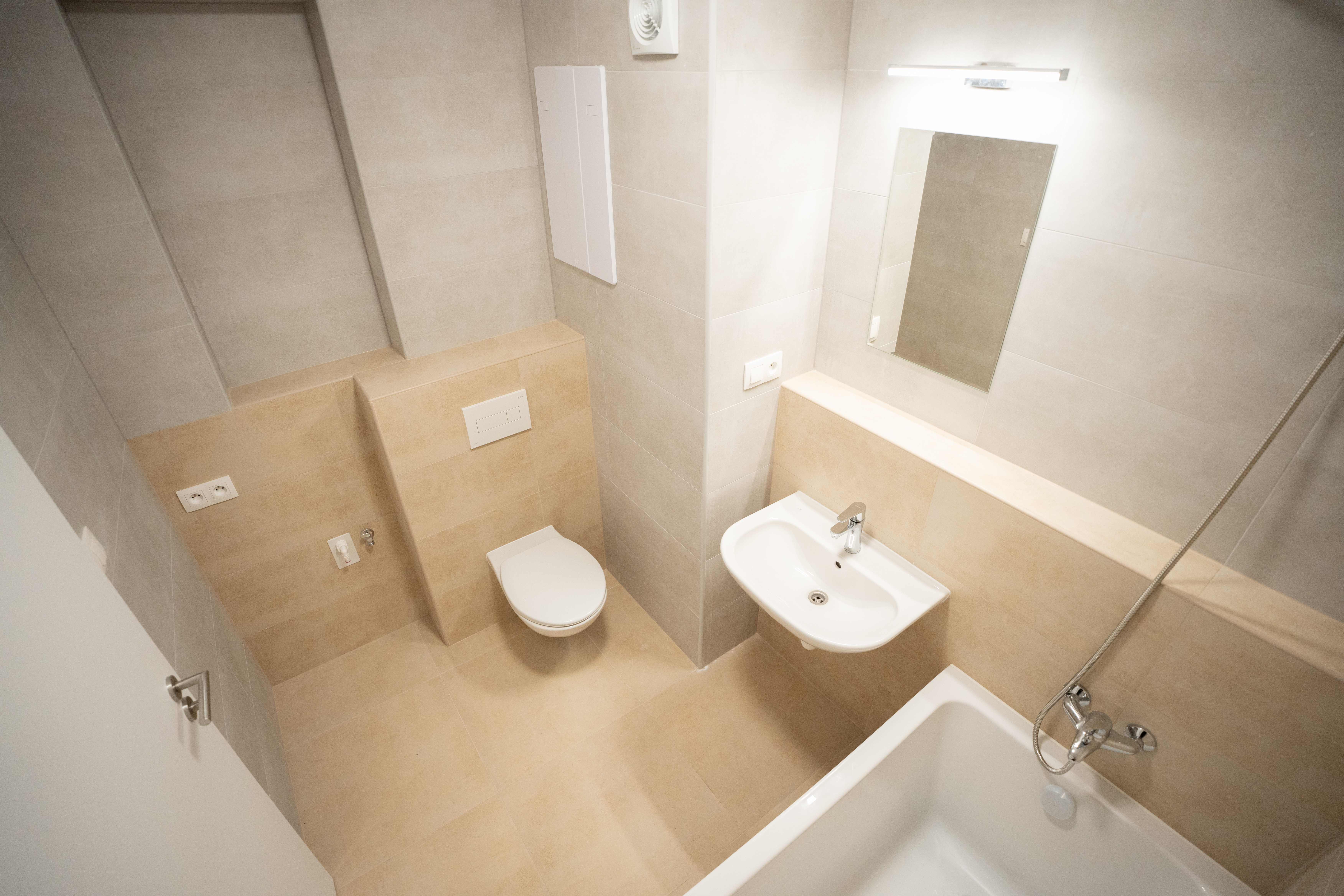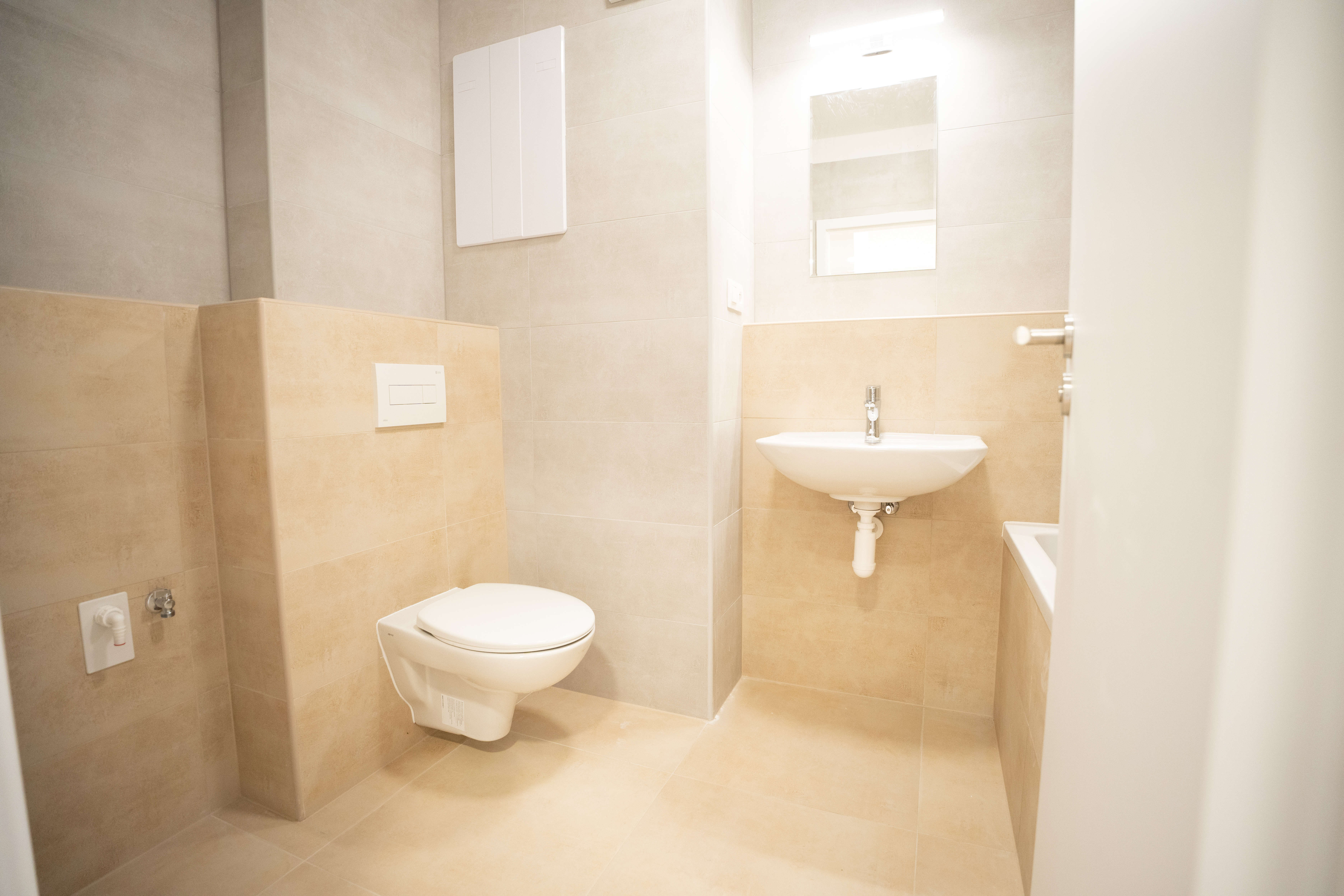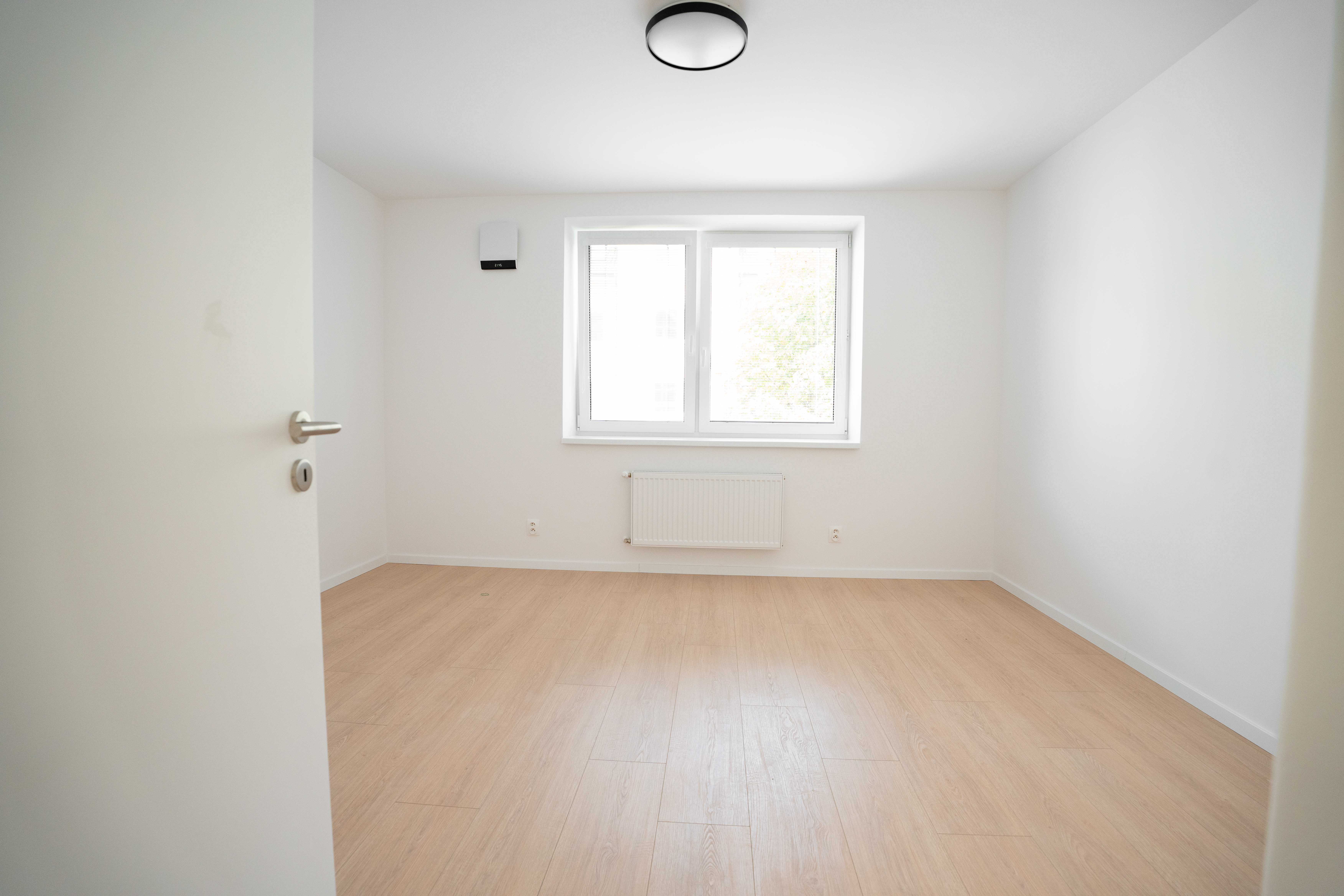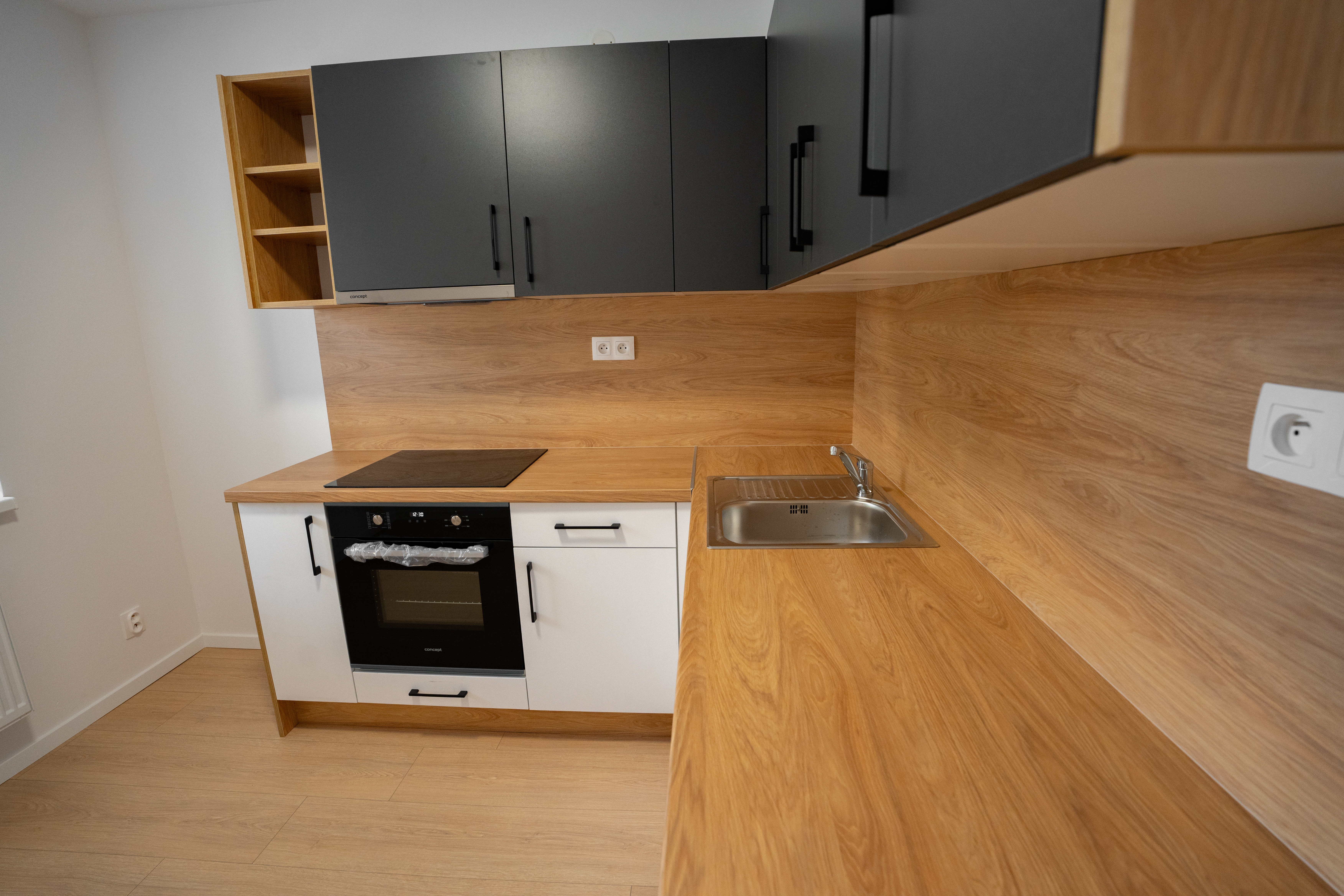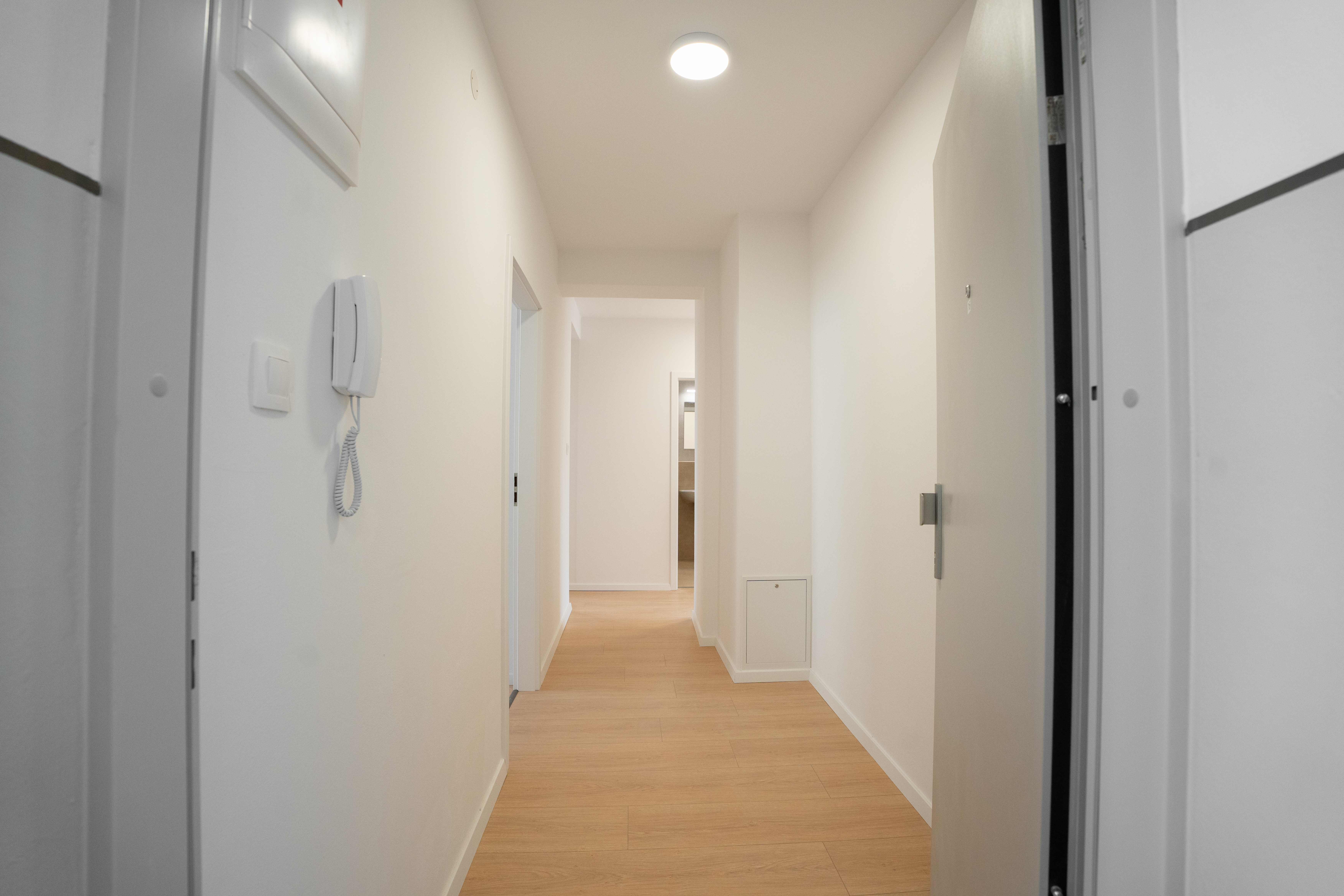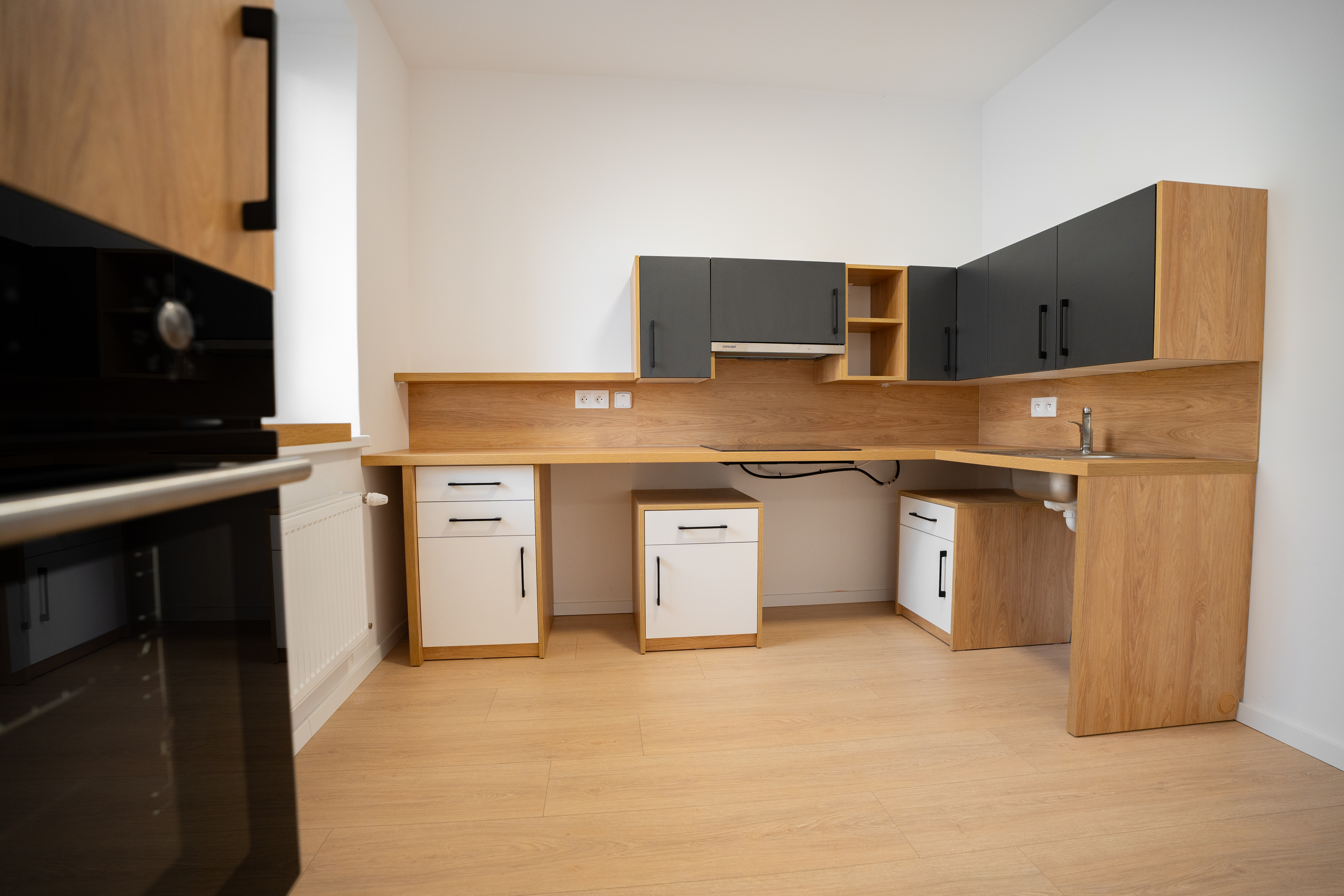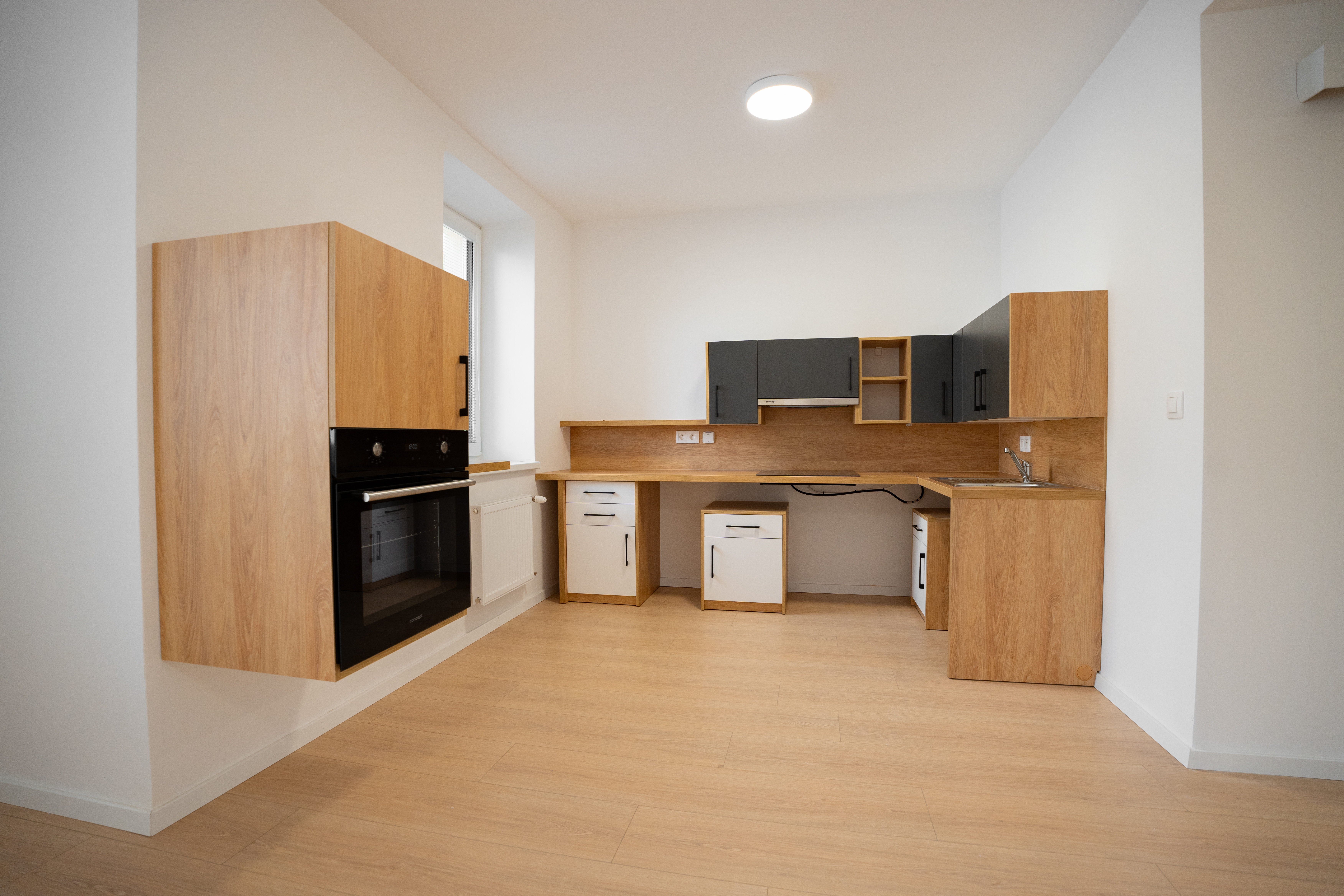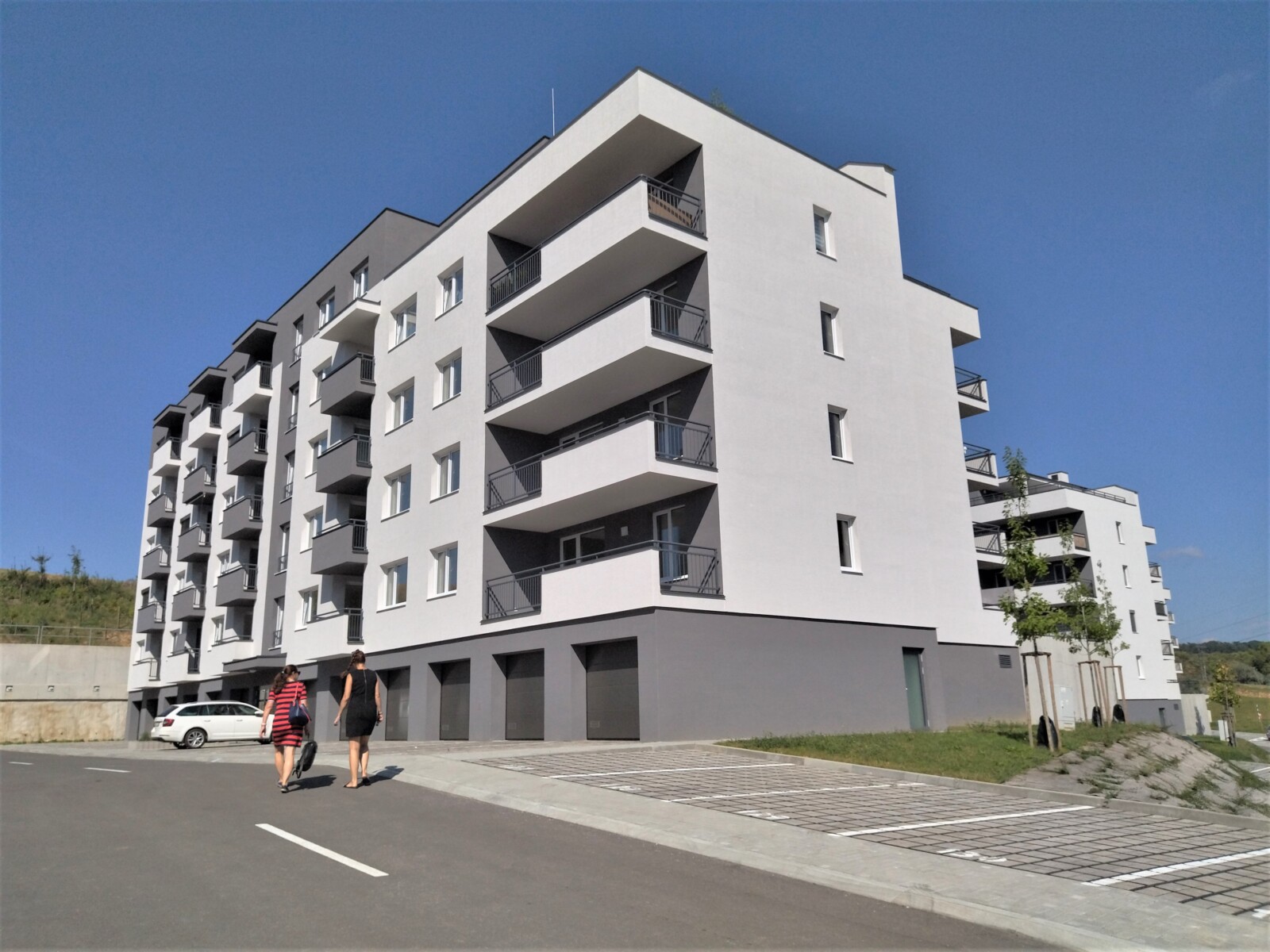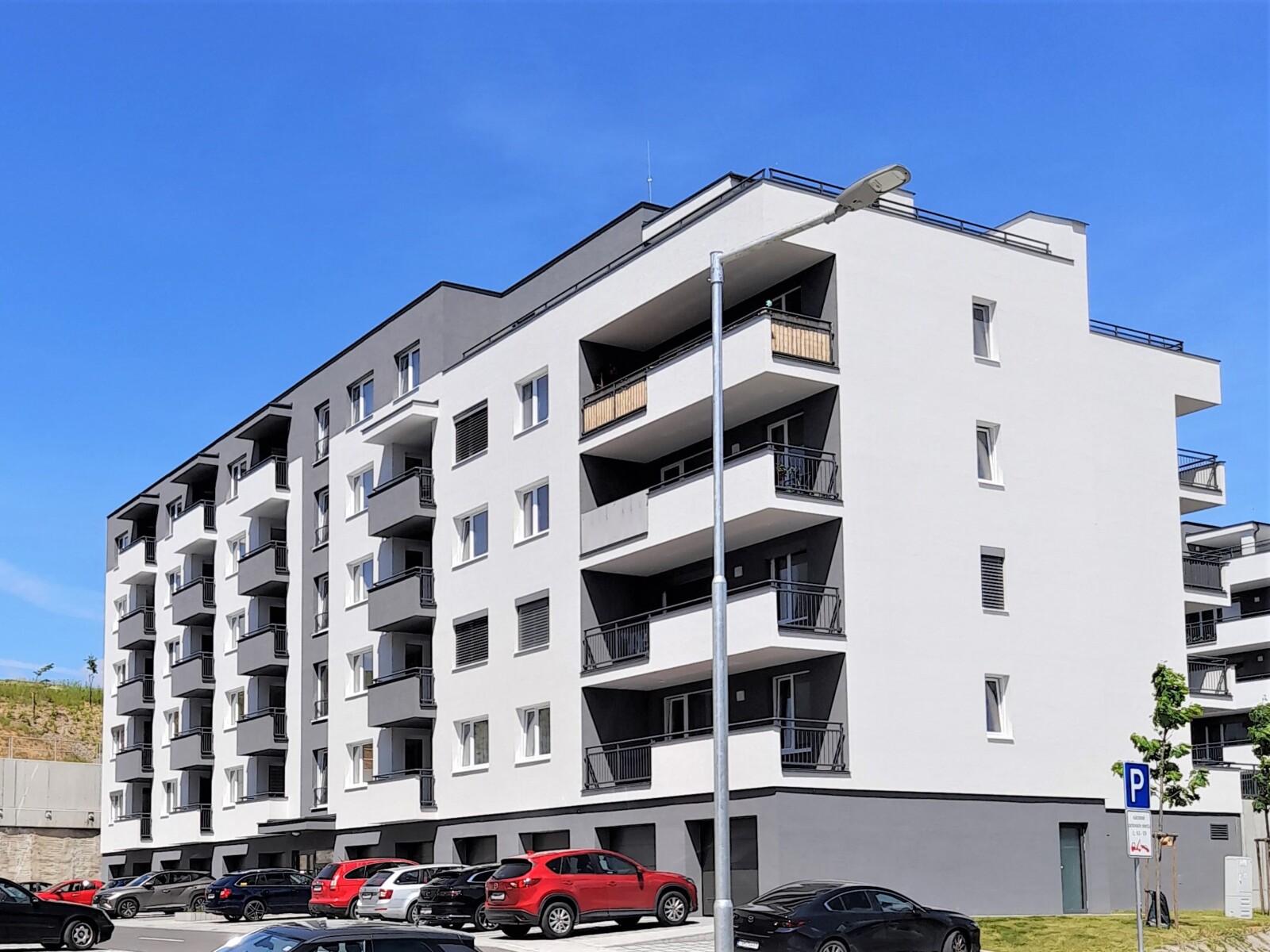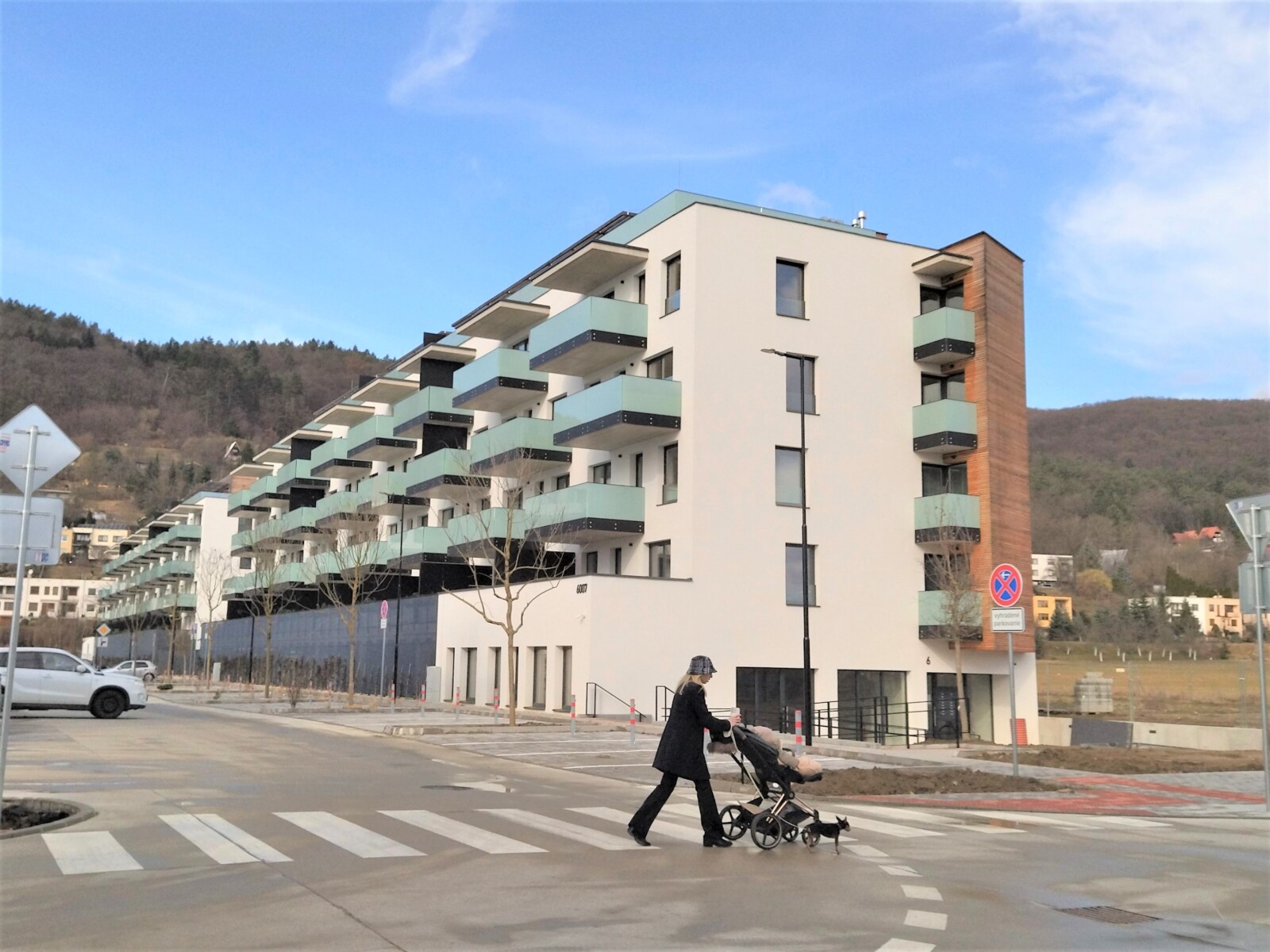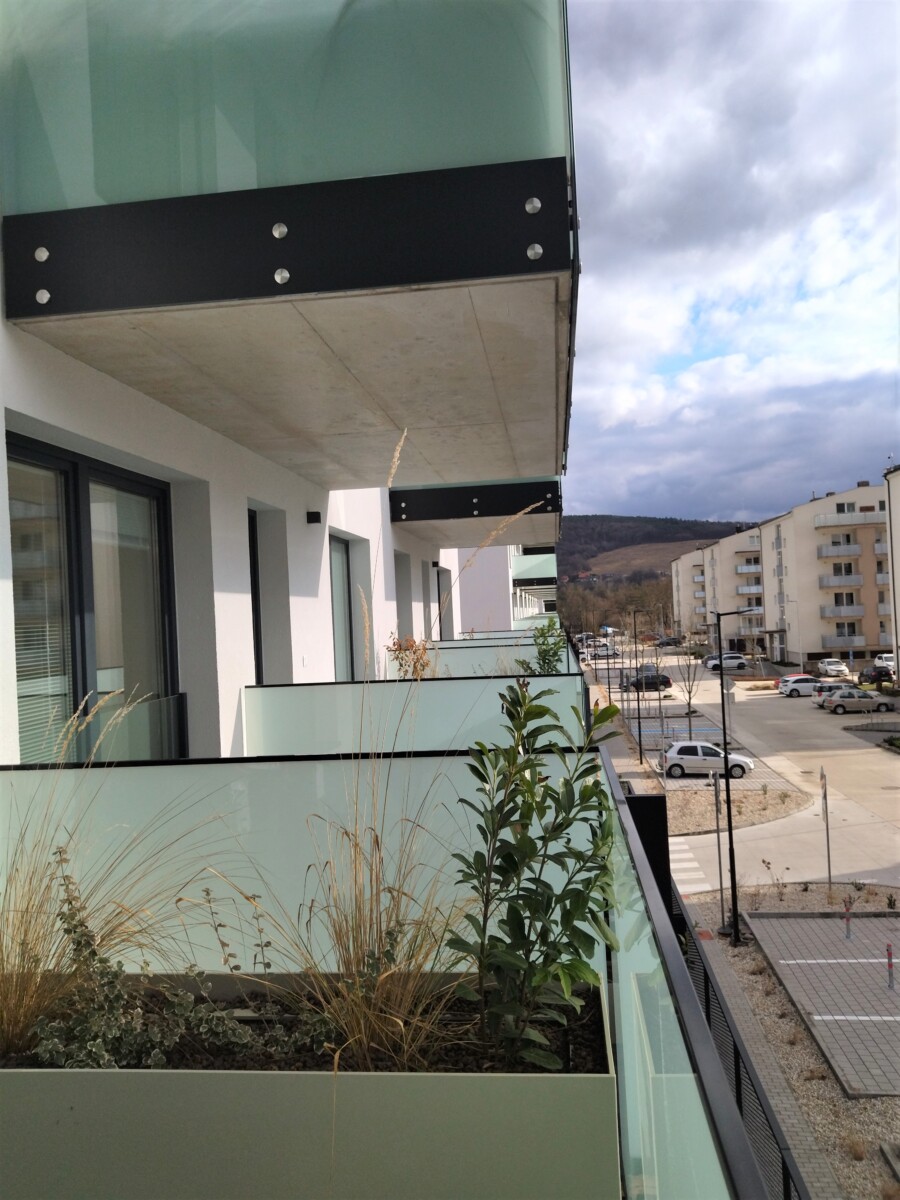Prioritising the places and people that need it the most
Dostupný Domov (Affordable Home)
Dostupný Domov, j. s. a. - Providing affordable housing for all
A joint public-private social impact enterprise offering affordable, sustainable, and inclusive rental housing open to all, especially those who need it most.
Slovakia
National
Mainly urban
It refers to a physical transformation of the built environment (hard investment)
Yes
2021-09-30
Yes
ERDF : European Regional Development Fund
No
Yes
Yes
Yes
As a representative of an organisation
Dostupný Domov is the implementation of a unique concept - a public-private partnership, established as a common investment between a bank, Slovenská sporiteľna, the Slovak subsidiary of the ERSTE Group; and a publicly-owned investment company tasked with using European funds in a repayable form, the Slovak Investment Holding (SIH), in order to provide rental housing primarily for disadvantaged and vulnerable people at affordable rates. 'Prioritising the places and people that need it the most' is thus literally the company’s raison d’etre.
The company is a business entity generating profits to ensure its continued existence as a sustainable operation. In order to ensure the survival of the company, a maximum of 30% of available housing is provided at the commercial rates.
At the same time, its founding mission is to undertake these economic activities to achieve a measurable positive social impact – specifically, to help disadvantaged groups of the population gain access to adequate housing, an essential condition for obtaining and maintaining employment and financial stability for individuals. At least 70% of the apartments owned by the company are used to enable the target groups of people to live in housing that they would otherwise not be able to obtain under commercial market conditions.
Among the main target groups are people at the risk of poverty and social exclusion, people with disabilities, marginalised ethnic communities such as the Roma, young adults leaving institutional care, women and children suffering domestic violence, people without a home, asylum seekers, and other vulnerable groups.
The company thus functions as specifically a Social Impact Enterprise, aiming to achieve long-term viability, based on a carefully constructed business plan and minimising dependence on subsidies, while at the same time reinvesting all profits to expand its operations and maximise social impact.
The company is a business entity generating profits to ensure its continued existence as a sustainable operation. In order to ensure the survival of the company, a maximum of 30% of available housing is provided at the commercial rates.
At the same time, its founding mission is to undertake these economic activities to achieve a measurable positive social impact – specifically, to help disadvantaged groups of the population gain access to adequate housing, an essential condition for obtaining and maintaining employment and financial stability for individuals. At least 70% of the apartments owned by the company are used to enable the target groups of people to live in housing that they would otherwise not be able to obtain under commercial market conditions.
Among the main target groups are people at the risk of poverty and social exclusion, people with disabilities, marginalised ethnic communities such as the Roma, young adults leaving institutional care, women and children suffering domestic violence, people without a home, asylum seekers, and other vulnerable groups.
The company thus functions as specifically a Social Impact Enterprise, aiming to achieve long-term viability, based on a carefully constructed business plan and minimising dependence on subsidies, while at the same time reinvesting all profits to expand its operations and maximise social impact.
Affordability
Sustainability
Inclusion
Viability
Public-private
All of the company’s purpose-built housing, as well as the newly constructred projects are subject to the highest environmental standards. In order to build modern and energy-efficient residential homes while maintaining affordability, Dostupný Domov employs the most cost-effective methods, such as modular construction, prefabricates and natural building materials such as wood.
From 2022, the company only invests in energy-efficient apartment buildings in class A0, i. e. "Nearly-Zero Energy Buildings". Gradually applying the ESG criteria, Dostupný Domov strives to achieve primary energy consumption at the level 10% below the requirements, i. e. ≤28.8 kWh/m².
The company uses modern green technologies (renewable sources) such as photovoltaic power plants (PVP) or solar panels for heating hot water. For new projects, the built-in expectation is the maximum use of the roof capacity for PV plants to produce electricity both for the apartment building itself and, in case of surpluses, for other consumers. The plan is also to employ heating systems with heat pumps and producing hot water using thermodynamic panel technology.
All existing apartments are equipped with recuperation units to ensure the comfort of fresh air, a healthy climate and the right humidity in the apartment, which has a positive effect on the health of tenants. Smart metering and control systems for monitoring water, electricity and heat consumption are employed to ensure both environmental sustainability and cost optimisation.
Last but not least, in order to minimise the number of individual car journeys and distance travelled by cars, the sites of the apartment buildings are selected in such a way as to ensure good access to public transport possibilities.
From 2022, the company only invests in energy-efficient apartment buildings in class A0, i. e. "Nearly-Zero Energy Buildings". Gradually applying the ESG criteria, Dostupný Domov strives to achieve primary energy consumption at the level 10% below the requirements, i. e. ≤28.8 kWh/m².
The company uses modern green technologies (renewable sources) such as photovoltaic power plants (PVP) or solar panels for heating hot water. For new projects, the built-in expectation is the maximum use of the roof capacity for PV plants to produce electricity both for the apartment building itself and, in case of surpluses, for other consumers. The plan is also to employ heating systems with heat pumps and producing hot water using thermodynamic panel technology.
All existing apartments are equipped with recuperation units to ensure the comfort of fresh air, a healthy climate and the right humidity in the apartment, which has a positive effect on the health of tenants. Smart metering and control systems for monitoring water, electricity and heat consumption are employed to ensure both environmental sustainability and cost optimisation.
Last but not least, in order to minimise the number of individual car journeys and distance travelled by cars, the sites of the apartment buildings are selected in such a way as to ensure good access to public transport possibilities.
In sharp contrast to the sub-standard housing which regionally tends to be considered as sufficient for the most disadvantaged groups, Dostupný Domov aims to provide its tenants with the highest possible experience at the affordable level of rent.
After its foundation in February 2020, right on the cusp of the COVID-19 pandemic and the consequent limitations on mobility and social interactions, Dostupný Domov initially concentrated on the purchases of flats for its tenants on the secondary markets, thus being limited to the available supply. Nevertheless, even in this initial phase, the emphasis was always on dignified housing conditions, including small-scale reconstruction where necessary.
Once the company secured sufficient funding, it expanded its activities both into developing purpose-built housing for its tenants in locales such as Zavar and Skalica and purchasing complete newly-constructured buildings, for example in Trenčín or Martin. All of these new constructions were subject to the requirement of high standard for building materials and processes, while taking care that the rental housing remained affordable for the tenant target groups. The company strives to achieve a modern, functional and attractive design of apartment buildings, paying attention to details, such as including a balcony/loggia for each apartment. When designing layouts, Dostupný Domov aims for the optimal use of space: minimising unused areas, efficient layouts of apartment units, storage and warehouse spaces, common areas and landscaping of apartment buildings for community use.
Detailed descriptions of the company’s individual apartment blocks are available in the presentation attached, as well as on the Dostupný Domov dedicated website (https://dostupnydomovbyty.sk/).
After its foundation in February 2020, right on the cusp of the COVID-19 pandemic and the consequent limitations on mobility and social interactions, Dostupný Domov initially concentrated on the purchases of flats for its tenants on the secondary markets, thus being limited to the available supply. Nevertheless, even in this initial phase, the emphasis was always on dignified housing conditions, including small-scale reconstruction where necessary.
Once the company secured sufficient funding, it expanded its activities both into developing purpose-built housing for its tenants in locales such as Zavar and Skalica and purchasing complete newly-constructured buildings, for example in Trenčín or Martin. All of these new constructions were subject to the requirement of high standard for building materials and processes, while taking care that the rental housing remained affordable for the tenant target groups. The company strives to achieve a modern, functional and attractive design of apartment buildings, paying attention to details, such as including a balcony/loggia for each apartment. When designing layouts, Dostupný Domov aims for the optimal use of space: minimising unused areas, efficient layouts of apartment units, storage and warehouse spaces, common areas and landscaping of apartment buildings for community use.
Detailed descriptions of the company’s individual apartment blocks are available in the presentation attached, as well as on the Dostupný Domov dedicated website (https://dostupnydomovbyty.sk/).
Inclusion is the very basis of the Dostupný Domov operation – it is expressly aimed to provide housing to those groups of people who are excluded from the commercial housing market for various reasons. These reasons range from the financial unaffordability in the most straightforward cases, through disadvantageous life situations that turn people into unattractive prospective tenants, such as single parents, all the way to the deep social stigma attached to the most vulnerable and marginalised groups in the society, such as the unhoused people, war refugees, or members of the marginalised Roma communities.
In order to accommodate tenants in difficult life situations and positions, the company also emphasises another aspect of inclusion, namely the provision of appropriate social services to all the tenants in need of such services, which is provided by the partner non-governmental organisations.
Dostupný Domov takes care to provide physically accessible housing in its purpose-built housing, such as the ground floor flats in its Zavar project – such as lowered access to kitchen appliances, bathroom facilities equipped with railings, and sliding doors – in order to make sure that tenants living with disabilities are also included from the very start.
Last but not least, both the purpose-built projects and the flats purchased on the secondary market are located close to local amenities such as shops, schools, offices and entertainment, to prevent geographical exclusion of the Dostupný Domov tenants and secure their inclusion within the local community.
In order to accommodate tenants in difficult life situations and positions, the company also emphasises another aspect of inclusion, namely the provision of appropriate social services to all the tenants in need of such services, which is provided by the partner non-governmental organisations.
Dostupný Domov takes care to provide physically accessible housing in its purpose-built housing, such as the ground floor flats in its Zavar project – such as lowered access to kitchen appliances, bathroom facilities equipped with railings, and sliding doors – in order to make sure that tenants living with disabilities are also included from the very start.
Last but not least, both the purpose-built projects and the flats purchased on the secondary market are located close to local amenities such as shops, schools, offices and entertainment, to prevent geographical exclusion of the Dostupný Domov tenants and secure their inclusion within the local community.
From the start, Dostupný Domov was based on co-operation with civil society organisations working with the prospective tenants and, where necessary, continuing to provide social services for them once they receive housing as well. These NGOs were involved in the development of the appropriate housing concept, based on their expertise in working with the people in various target groups, and subsequently took on the responsibility in renting and sub-letting some of the company apartments. By December 2024, NGOs with clients in the target group were renting 51 out of the total of 412 Dostupný Domov flats, providing services and social support to the following categories of tenants:
• Centrum Slniečko n. o., Nitra (7 apartments – victims of domestic violence, including children)
• BOB Bratislava Housing Organization (10 apartments – families in crisis situations)
• Spiš Catholic Charity (7 apartments, families in crisis situations, families from MRK, CDR foster children)
• Archdiocesan Charity Trnava (6 apartments – homeless people and families in crisis situations)
• OZ Vagus, Bratislava (2 apartments – homeless people)
• Dedo Foundation, Košice (3 apartments – families in crisis situations and families from MRK)
• KA Social Services Center, Banská Bystrica (6 apartments – victims of domestic violence, including children)
• OZ Žena v tiesni (2 apartments – victims of domestic violence, including children)
• STOPA Slovensko o.z. (2 apartments - homeless people)
• DePaul Slovensko n.o., Bratislava (2 apartments - homeless people)
• Tenenet o.z. (1 apartment – a disabled person)
• Evangelical DIAKONIA Center Horná Mičiná - Debora (1 apartment - mother with children)
• Institute of Theology, Mission and Social Work, n. o. (1 apartment - foster child of a children's home, closed on 31.1.2024)
• Križovatky n.o., Emauzy shelter, Holíč (1 apartment - victims of domestic violence, also with children)
• CDR Skalica (1 apartment - young adults leaving foster care)
• Centrum Slniečko n. o., Nitra (7 apartments – victims of domestic violence, including children)
• BOB Bratislava Housing Organization (10 apartments – families in crisis situations)
• Spiš Catholic Charity (7 apartments, families in crisis situations, families from MRK, CDR foster children)
• Archdiocesan Charity Trnava (6 apartments – homeless people and families in crisis situations)
• OZ Vagus, Bratislava (2 apartments – homeless people)
• Dedo Foundation, Košice (3 apartments – families in crisis situations and families from MRK)
• KA Social Services Center, Banská Bystrica (6 apartments – victims of domestic violence, including children)
• OZ Žena v tiesni (2 apartments – victims of domestic violence, including children)
• STOPA Slovensko o.z. (2 apartments - homeless people)
• DePaul Slovensko n.o., Bratislava (2 apartments - homeless people)
• Tenenet o.z. (1 apartment – a disabled person)
• Evangelical DIAKONIA Center Horná Mičiná - Debora (1 apartment - mother with children)
• Institute of Theology, Mission and Social Work, n. o. (1 apartment - foster child of a children's home, closed on 31.1.2024)
• Križovatky n.o., Emauzy shelter, Holíč (1 apartment - victims of domestic violence, also with children)
• CDR Skalica (1 apartment - young adults leaving foster care)
Dostupný Domov's operation was significantly boosted by Slovak Investment Holding's involvement at the national level and cooperation with municipal representations locally.
SIH's expertise in the European Structural and Investment Fund rules guided the project toward publicly beneficial goals, while strictly adhering to commercial viability. Municipalities contributed local knowledge and citizens' needs.
Specifically, Dostupný Domov established close cooperation with the City of Bratislava, in order to develop affordable rental housing and reduce homelessness. In the pilot project (2023-2024), the company provided the Bratislava Housing Organization (BOB) with 10 apartments for families in housing crises.
The municipality of Púchov rented a 3-room apartment from the company, is used exclusively to accommodate people in need of housing, as the town itself does not have this type of social housing. In 2021-2023, a mother with two children was accommodated in the apartment, then from 2023 a family of seven.
Cooperation with the town of Holíč began right at the beginning of the launch of the local Dostupný Domov project. In cooperation with the city, the apartments were offered preferentially to applicants for a city apartment. From the list of applicants, 10 families were selected; Dostupný Domov was the first to provide them with new apartments.
In the town of Komárno, Dostupný Domov also actively cooperates with the city in solving the crisis housing situation of people who are in a difficult life situation and to whom the city provides some form of support, but is unable to provide accommodation. This is how accommodation was secured, for example, in a 2-room apartment for a family consisting of a grandmother with two adopted grandchildren, or in a 1-room apartment for and a young man who aged out of institutional care.
SIH's expertise in the European Structural and Investment Fund rules guided the project toward publicly beneficial goals, while strictly adhering to commercial viability. Municipalities contributed local knowledge and citizens' needs.
Specifically, Dostupný Domov established close cooperation with the City of Bratislava, in order to develop affordable rental housing and reduce homelessness. In the pilot project (2023-2024), the company provided the Bratislava Housing Organization (BOB) with 10 apartments for families in housing crises.
The municipality of Púchov rented a 3-room apartment from the company, is used exclusively to accommodate people in need of housing, as the town itself does not have this type of social housing. In 2021-2023, a mother with two children was accommodated in the apartment, then from 2023 a family of seven.
Cooperation with the town of Holíč began right at the beginning of the launch of the local Dostupný Domov project. In cooperation with the city, the apartments were offered preferentially to applicants for a city apartment. From the list of applicants, 10 families were selected; Dostupný Domov was the first to provide them with new apartments.
In the town of Komárno, Dostupný Domov also actively cooperates with the city in solving the crisis housing situation of people who are in a difficult life situation and to whom the city provides some form of support, but is unable to provide accommodation. This is how accommodation was secured, for example, in a 2-room apartment for a family consisting of a grandmother with two adopted grandchildren, or in a 1-room apartment for and a young man who aged out of institutional care.
Dostupný Domov benefitted from the expertise and knowledge of the market conditions and business models on the side of the private partner, Slovenská sporiteľňa, on the one hand, and on the functioning of the social economy and social impact enterprises, which was brought to the project by the public sector partner, Slovak Investment Holding.
The business model was developed on the basis of a long-term plan with a horizon of 15 years, building on the experience with the many corporate clients of the bank, and taking into account possible changes in both the costs and revenues, in order to ensure the survival of the company.
In terms of the social impact, in the years 2014-2023, SIH was actively involved in the creation of a brand-new social economy support ecosystem in Slovakia, consisting of a new legislation, the Social Economy Act (2018); advisory infrastructure for social economy enterprises, the Social Economy Institute; the European Structural and Investment Funds' financial instruments (repayable assistance), operated by SIH itself; and the creation of a supplementary grant scheme, Investment Aid for Social Enterprises.
This expertise was provided by the Investment Manager in charge of the relevant financial instruments, who was deeply involved in all of the stages of the process of creation and all of the elements of the ecosystem. The expertise provided allowed for Dostupný Domov to be established as a Social Impact Enterprise, i. e. functioning on a commercial basis, but aligning its business strategy with the social mission as undertaken by the social economy.
The general expertise in the use of ESI Funds financial instruments was also significant, which later resulted in the project being awarded the FI-Compass Showcase Award 2024, a non-monetary prize to SIH for its investment in Dostupný Domov (https://www.fi-compass.eu/showcase-2024/sih-fostering-integration-through-affordable-housing)
The business model was developed on the basis of a long-term plan with a horizon of 15 years, building on the experience with the many corporate clients of the bank, and taking into account possible changes in both the costs and revenues, in order to ensure the survival of the company.
In terms of the social impact, in the years 2014-2023, SIH was actively involved in the creation of a brand-new social economy support ecosystem in Slovakia, consisting of a new legislation, the Social Economy Act (2018); advisory infrastructure for social economy enterprises, the Social Economy Institute; the European Structural and Investment Funds' financial instruments (repayable assistance), operated by SIH itself; and the creation of a supplementary grant scheme, Investment Aid for Social Enterprises.
This expertise was provided by the Investment Manager in charge of the relevant financial instruments, who was deeply involved in all of the stages of the process of creation and all of the elements of the ecosystem. The expertise provided allowed for Dostupný Domov to be established as a Social Impact Enterprise, i. e. functioning on a commercial basis, but aligning its business strategy with the social mission as undertaken by the social economy.
The general expertise in the use of ESI Funds financial instruments was also significant, which later resulted in the project being awarded the FI-Compass Showcase Award 2024, a non-monetary prize to SIH for its investment in Dostupný Domov (https://www.fi-compass.eu/showcase-2024/sih-fostering-integration-through-affordable-housing)
The great majority of new building projects in Slovakia concentrate on the provision of housing for sale, thus pricing out a significant proportion of the population, namely that segment which is not considered eligible for mortgages by the banks. This is obviously especially pronounced for the disadvantaged and vulnerable groups of people, who often face many additional barriers and tend to be completely out of scope for new housing projects.
Dostupný Domov is completely innovative in this respect, concentrating as it does specifically on rental housing, and moreover, aiming to provide such rental housing at rates affordable for precisely those target groups whom the market fails.
The co-operation between the public and the private partner is another innovative aspect of the project. The use of the European Structural and Investment Funds in a repayable form, an equity investment, is a pioneering act in the given area, allowing for the eventual recycling of the capital for further support of socially beneficial goals.
Finally, aside from the equity stakes of both the private and the public shareholder, the company is also partly financed in an innovative way – namely, by an issue of Social Impact Bonds.
Dostupný Domov is completely innovative in this respect, concentrating as it does specifically on rental housing, and moreover, aiming to provide such rental housing at rates affordable for precisely those target groups whom the market fails.
The co-operation between the public and the private partner is another innovative aspect of the project. The use of the European Structural and Investment Funds in a repayable form, an equity investment, is a pioneering act in the given area, allowing for the eventual recycling of the capital for further support of socially beneficial goals.
Finally, aside from the equity stakes of both the private and the public shareholder, the company is also partly financed in an innovative way – namely, by an issue of Social Impact Bonds.
The overall approach chosen followed from the fact that there has been a great unmet need for social rental housing in Slovakia, as described in the ex-ante assessment for the use of the ESI Funds financial instruments in the country.
More than 90% of housing in Slovakia is privately owned, while only 3% of this privately owned housing is available for rent, leaving insufficient housing to meet the needs of low-income people who cannot afford to buy a home.
As described in the EC’s Staff Working Document – Country Report Slovak Republic 2016, 40% of the population live in overcrowded households, and according to the Housing Europe report The State of Housing in the EU – 2015, 74% of young people (18-34) live with their parents. In addition, about 150 000 Roma live in unsatisfactory housing conditions.
Although a model of support for social housing exists in the Slovak Republic in the form of favourable loans to municipalities from the State Housing Development Fund in combination with subsidies from the Ministry of Construction, the allocation remains deeply inadequate. Thus, based on the updated ex-ante in 2018, the market gap for the unmet demand for social housing has been estimated at EUR 401.7 to 425.8 million in total, suggesting an investment total of EUR 250 million over the 2019-2023 period.
Given this data, there was a great potential for the company to find demand. However, due to the high levels of risk presenting for any start-up company, the initial strategy was to divide the project into individual phases – a pilot phase until September 2022, with relatively low investment levels, to test out the concept and decide whether to continue or terminate the project; and, in the case of a positive result, a follow-up phase intended to build on an ‘evergreen’ principle, investing the bulk of the available funds. The pilot phase was in fact successfully completed a year early, and thus from September 30th, 2021, the project reached maturity.
More than 90% of housing in Slovakia is privately owned, while only 3% of this privately owned housing is available for rent, leaving insufficient housing to meet the needs of low-income people who cannot afford to buy a home.
As described in the EC’s Staff Working Document – Country Report Slovak Republic 2016, 40% of the population live in overcrowded households, and according to the Housing Europe report The State of Housing in the EU – 2015, 74% of young people (18-34) live with their parents. In addition, about 150 000 Roma live in unsatisfactory housing conditions.
Although a model of support for social housing exists in the Slovak Republic in the form of favourable loans to municipalities from the State Housing Development Fund in combination with subsidies from the Ministry of Construction, the allocation remains deeply inadequate. Thus, based on the updated ex-ante in 2018, the market gap for the unmet demand for social housing has been estimated at EUR 401.7 to 425.8 million in total, suggesting an investment total of EUR 250 million over the 2019-2023 period.
Given this data, there was a great potential for the company to find demand. However, due to the high levels of risk presenting for any start-up company, the initial strategy was to divide the project into individual phases – a pilot phase until September 2022, with relatively low investment levels, to test out the concept and decide whether to continue or terminate the project; and, in the case of a positive result, a follow-up phase intended to build on an ‘evergreen’ principle, investing the bulk of the available funds. The pilot phase was in fact successfully completed a year early, and thus from September 30th, 2021, the project reached maturity.
There are several key aspects of the Dostupný Domov model that could be transferred or replicated in other contexts, namely:
Public-Private Partnership: The collaboration between SIH and Slovenská sporiteľňa demonstrates a successful public-private partnership. This model can be replicated to leverage both public and private funds for social impact projects, ensuring shared risks and rewards.
Targeted Social Impact: The focus on providing housing for disadvantaged and vulnerable groups, including marginalized Roma communities, can be adapted to other contexts. This targeted approach ensures that the most in-need populations receive support, improving social inclusion and cohesion.
Collaboration with NGOs: Partnering with NGOs to provide social services and manage housing for tenants ensures that beneficiaries receive comprehensive support. This model can be transferred to other contexts where NGOs play a crucial role in community support and development.
Sustainable Rental Model: The project’s model of offering 70% of properties at below-market rates while renting 30% at market rates to build reserves can be adapted to ensure financial sustainability in other affordable housing projects.
Regulatory Framework: Beyond the project itself, it is important to note that supportive legislative environment, such as the Social Economy Act, is crucial for the success of such projects. Other regions can benefit from developing similar regulatory frameworks to promote social economy initiatives.
By adopting these elements, other regions can create effective and sustainable solutions to address housing shortages and support vulnerable populations, fostering social inclusion and economic development.
Public-Private Partnership: The collaboration between SIH and Slovenská sporiteľňa demonstrates a successful public-private partnership. This model can be replicated to leverage both public and private funds for social impact projects, ensuring shared risks and rewards.
Targeted Social Impact: The focus on providing housing for disadvantaged and vulnerable groups, including marginalized Roma communities, can be adapted to other contexts. This targeted approach ensures that the most in-need populations receive support, improving social inclusion and cohesion.
Collaboration with NGOs: Partnering with NGOs to provide social services and manage housing for tenants ensures that beneficiaries receive comprehensive support. This model can be transferred to other contexts where NGOs play a crucial role in community support and development.
Sustainable Rental Model: The project’s model of offering 70% of properties at below-market rates while renting 30% at market rates to build reserves can be adapted to ensure financial sustainability in other affordable housing projects.
Regulatory Framework: Beyond the project itself, it is important to note that supportive legislative environment, such as the Social Economy Act, is crucial for the success of such projects. Other regions can benefit from developing similar regulatory frameworks to promote social economy initiatives.
By adopting these elements, other regions can create effective and sustainable solutions to address housing shortages and support vulnerable populations, fostering social inclusion and economic development.
The global challenge is of course the lack of sufficient affordable housing within the European Union Member States. Although the extent of this problem varies widely, with some countries markedly better at making sure that the housing provision is adequate, nevertheless the problem still has an impact on literally millions of EU residents. The lack of a cohesive, unified strategy hampers efforts to address housing shortages effectively.
The physical lack of housing in some countries is compounded by its unaffordability in others, especially in urban centres, in comparison to neglected rural areas. Economic disparities within countries are mirrored by inequalities between them as well. Eastern and Southern European countries often experience higher rates of poverty and lower wages, making it difficult for residents to afford decent housing. The economic divide creates an uneven playing field, with some regions facing more acute housing crises than others.
Another significant factor is the influx of migrants and refugees, which has placed additional strain on housing markets. While the EU upholds humanitarian values, accommodating these newcomers requires substantial housing infrastructure, often unavailable in already stressed urban centers. This influx can lead to competition for housing, driving up rental prices and exacerbating homelessness.
Dostupný Domov is a local solution to this problem. After five years of existence, it is still in its nascent phase, in the sense that it is not yet sufficiently large to have a significant impact on the housing provision within the country as a whole. Nevertheless, as a successful example, it may well serve as a catalyst, precipitating a change in the housing market and, once a critical mass is created, pushing down on the prices of provision of housing and therefore making it more affordable generally.
The physical lack of housing in some countries is compounded by its unaffordability in others, especially in urban centres, in comparison to neglected rural areas. Economic disparities within countries are mirrored by inequalities between them as well. Eastern and Southern European countries often experience higher rates of poverty and lower wages, making it difficult for residents to afford decent housing. The economic divide creates an uneven playing field, with some regions facing more acute housing crises than others.
Another significant factor is the influx of migrants and refugees, which has placed additional strain on housing markets. While the EU upholds humanitarian values, accommodating these newcomers requires substantial housing infrastructure, often unavailable in already stressed urban centers. This influx can lead to competition for housing, driving up rental prices and exacerbating homelessness.
Dostupný Domov is a local solution to this problem. After five years of existence, it is still in its nascent phase, in the sense that it is not yet sufficiently large to have a significant impact on the housing provision within the country as a whole. Nevertheless, as a successful example, it may well serve as a catalyst, precipitating a change in the housing market and, once a critical mass is created, pushing down on the prices of provision of housing and therefore making it more affordable generally.
In less than four years since its creation in February 2020 to the end of December 2024, Dostupný Domov acquired 412 apartments, providing housing for 917 persons in total.
Out of this total number, 603 tenants belong to one or more of the target groups, namely
- 103 members of the Marginalised Roma Communities;
- 52 persons with disabilities;
- 29 persons at risk of domestic violence;
- 6 young adults leaving foster care;
- 298 children under the age of 15;
- 1 formerly incarcerated person;
- 35 old-age pensioners;
- 37 persons formerly unhoused;
- 24 persons moving for reasons of labour mobility;
- 60 young workers under the age of 30;
- 105 asylum seekers, migrants, or refugees.
Altogether, 251 people belonging to one or more of the target groups have been receiving support in the form of social services.
Of the total number of households, 113 qualified as low-income and 80 were single-parent households.
Out of this total number, 603 tenants belong to one or more of the target groups, namely
- 103 members of the Marginalised Roma Communities;
- 52 persons with disabilities;
- 29 persons at risk of domestic violence;
- 6 young adults leaving foster care;
- 298 children under the age of 15;
- 1 formerly incarcerated person;
- 35 old-age pensioners;
- 37 persons formerly unhoused;
- 24 persons moving for reasons of labour mobility;
- 60 young workers under the age of 30;
- 105 asylum seekers, migrants, or refugees.
Altogether, 251 people belonging to one or more of the target groups have been receiving support in the form of social services.
Of the total number of households, 113 qualified as low-income and 80 were single-parent households.

